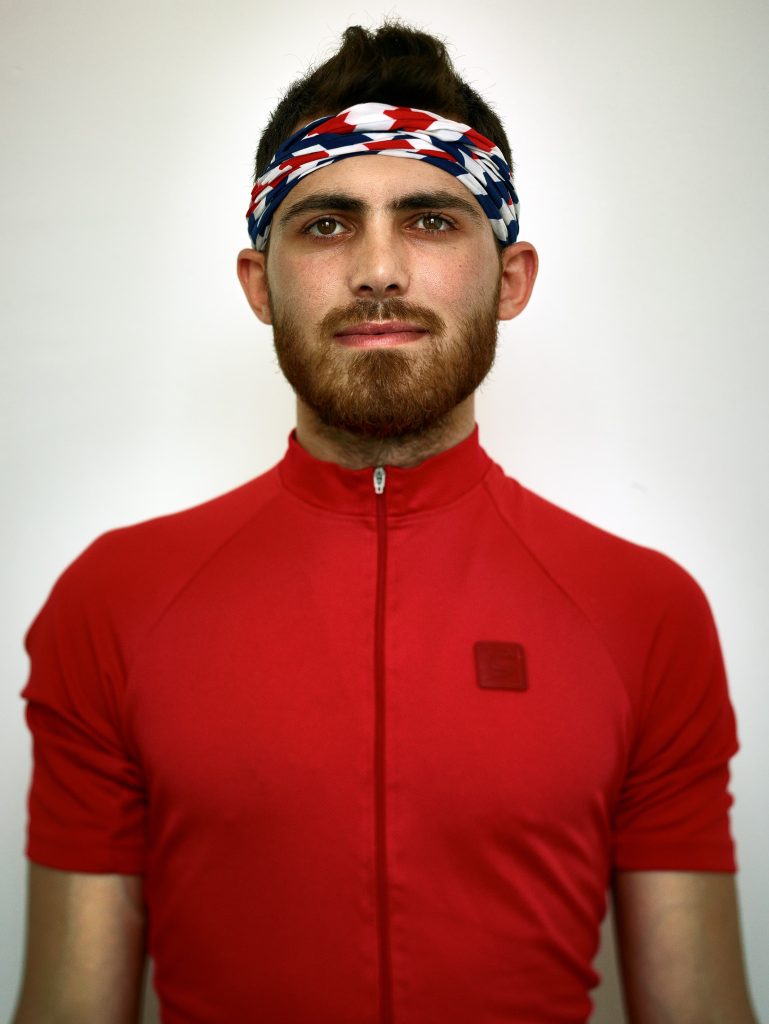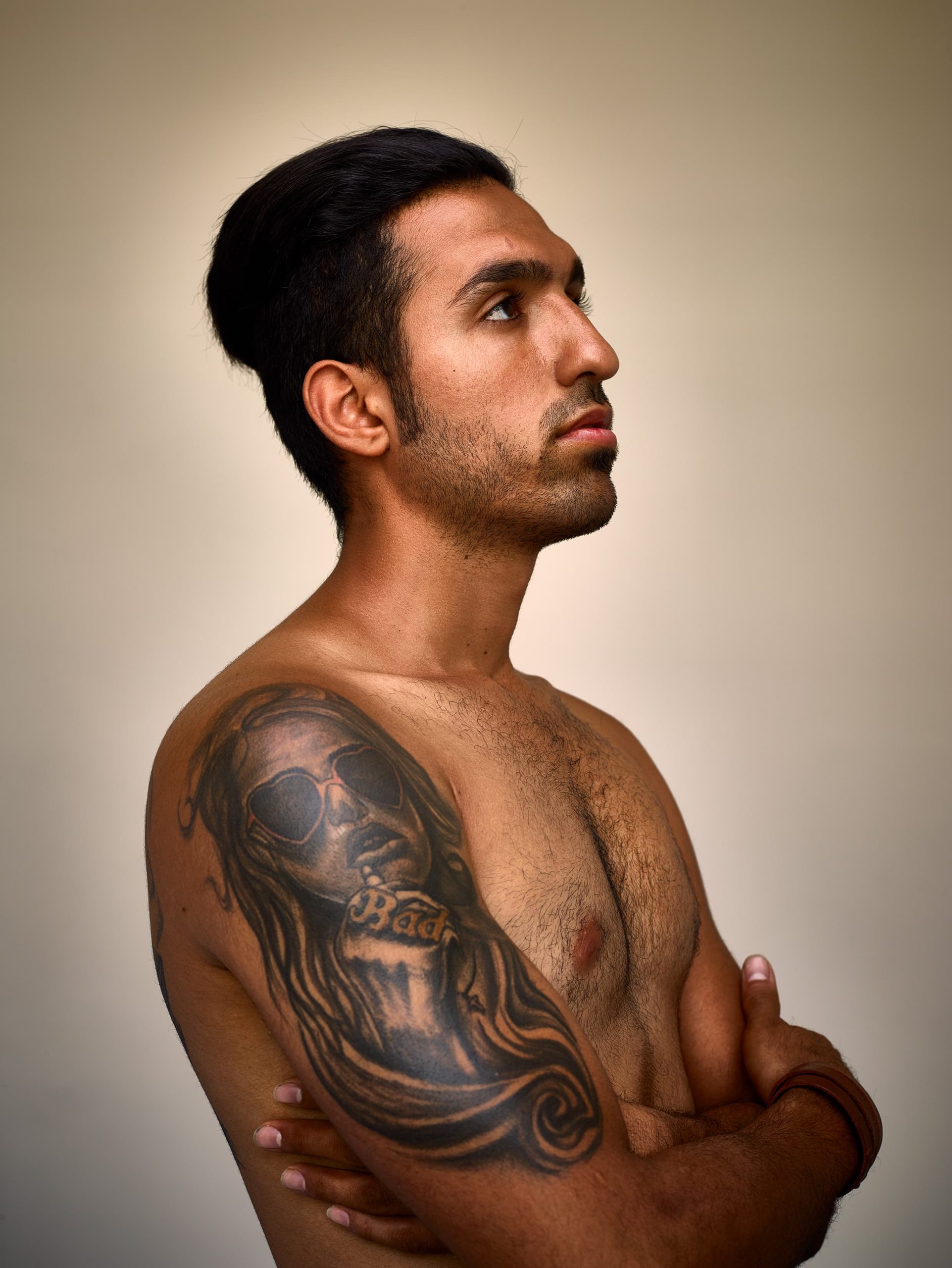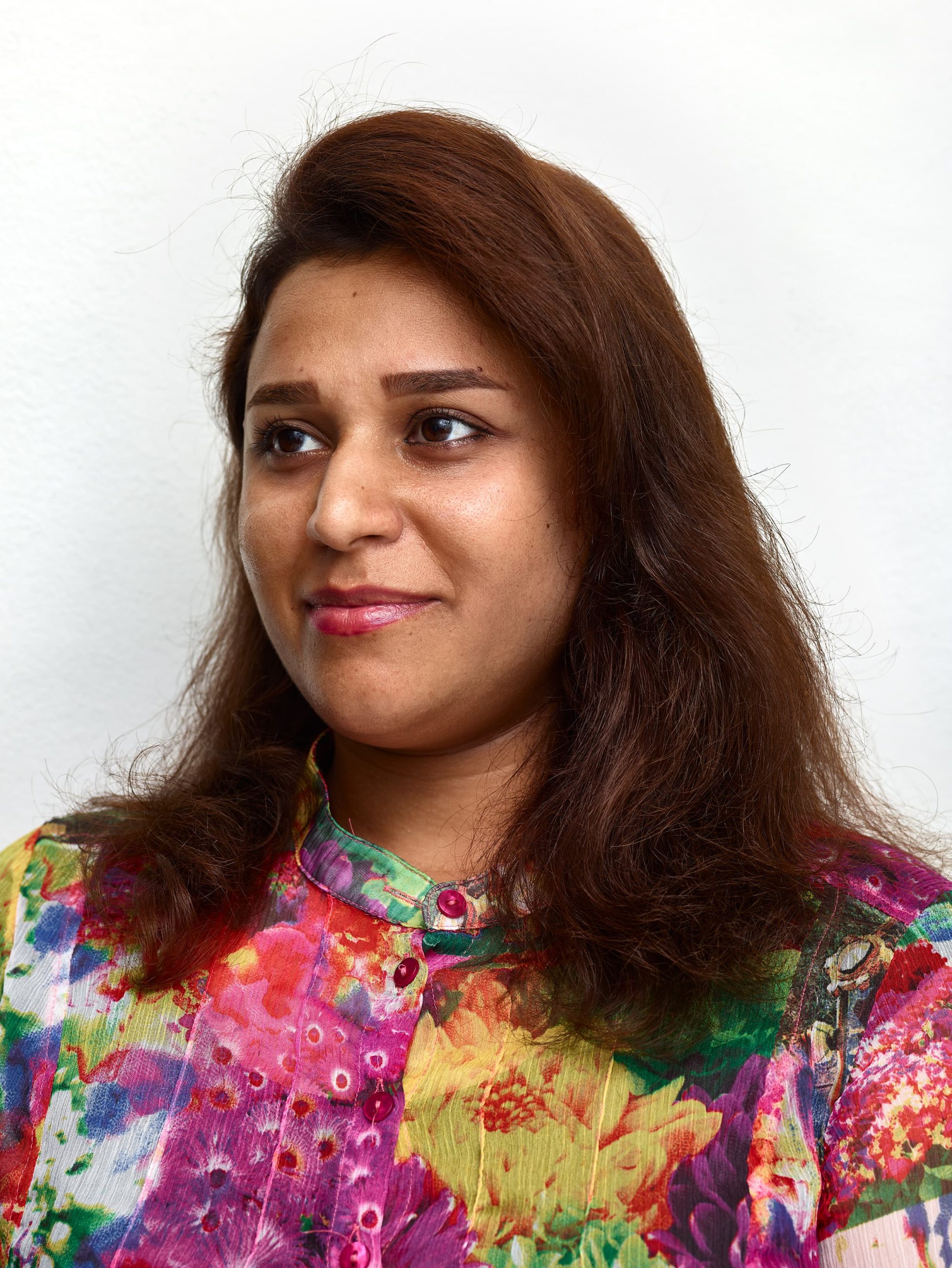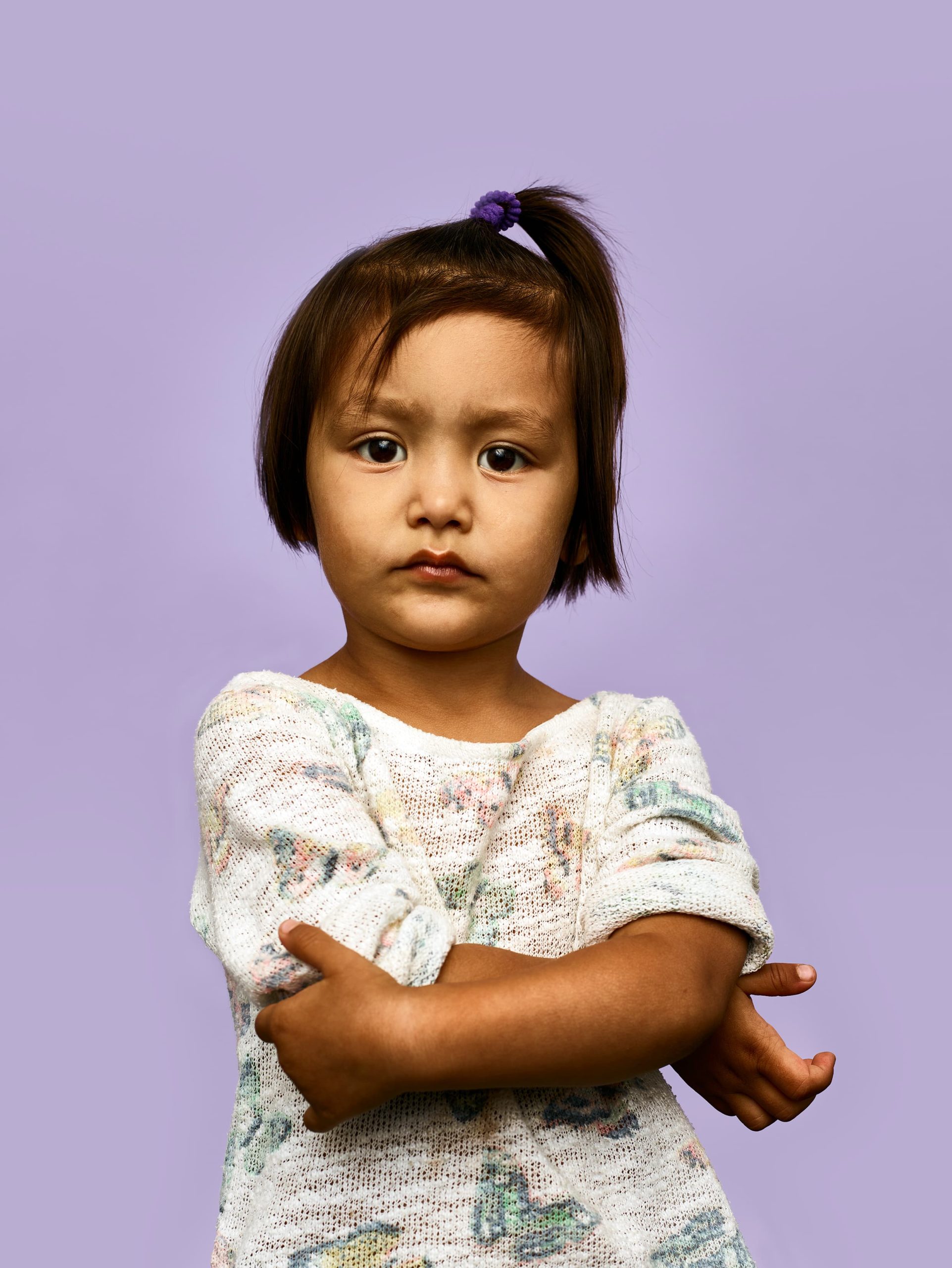A Long Way Here:
Portraits of
New Europeans
A giant migratory wave washing over the shores of Europe. A massive influx of refugees. A swarm of foreigners.
These are some of the terms we use to describe the millions of people who have been fleeing from terror and poverty and are now seeking refuge in Europe. In our conversations about refugee crises, masses, and swarms, we take away people’s faces and strip them of their stories. Waves, influxes, and swarms are easy to fear and in our rush to categorise, we forget that “them” means a person and a person and a person and a person and a person.
They are sons, sisters, and fathers. They are Marwan, who almost got killed for singing. They are Jaffari, who loves German Shepherds. They are Hussain, who just found out that his neighbourhood back home has been bombed. They are Kamkay, who is unhappily in love. They are Doaa, who considers laughter medicine for the heart.
Only when we look into their faces and listen to their stories, can we begin to understand who these New Europeans are. We might like what they say, or we might see things differently. We might find common ground. We might be surprised.
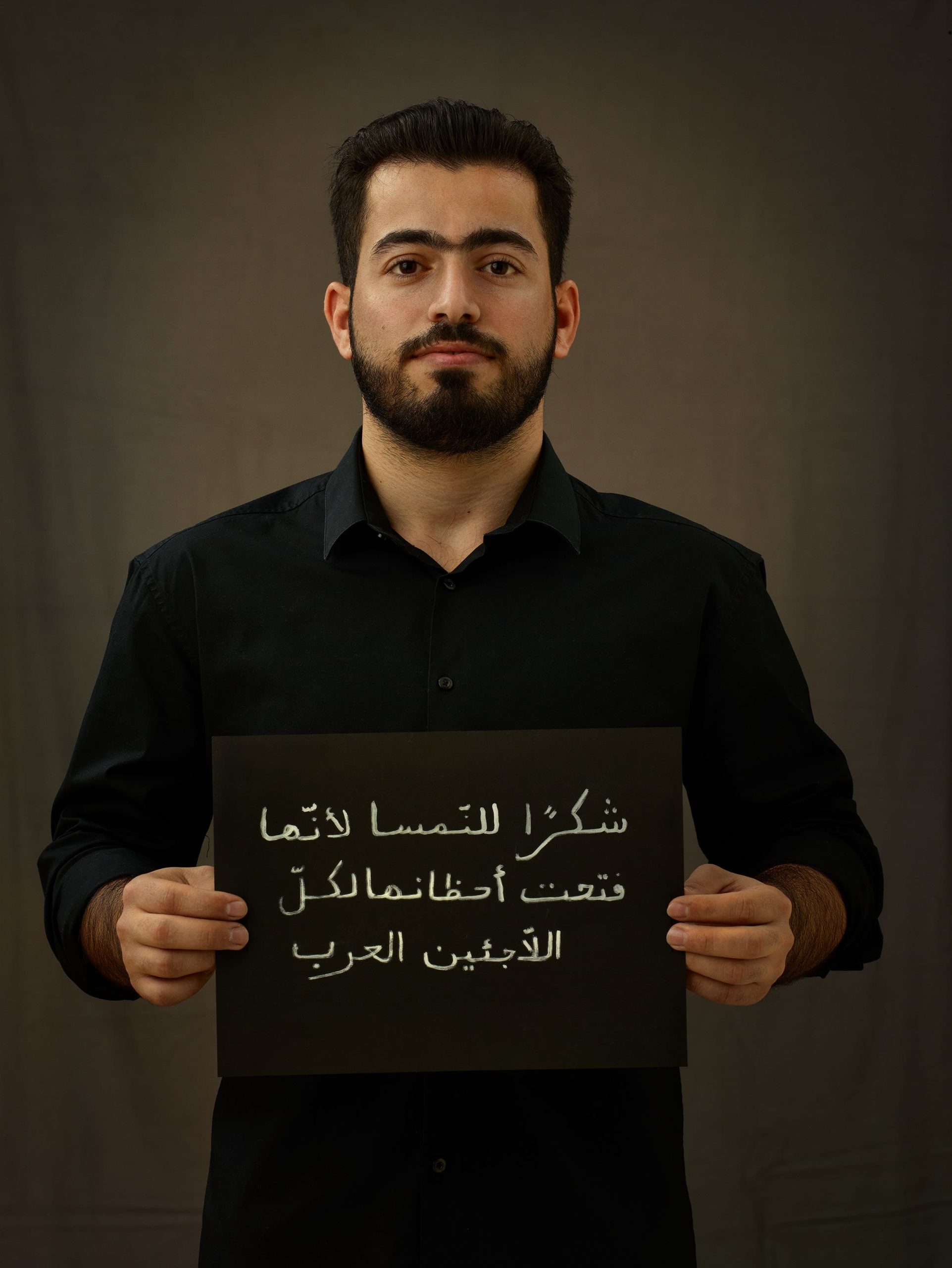
H. A., 24, Iraq, 18.10.2015
„Ever since I arrived in Austria, I’ve been very eager to be a part of the society here. I hope to be fluent in German within a year and to complete my studies in Informatics afterwards, which I had to give up in Iraq. I want to make friends and to learn every- thing about Austrians: What do they like to eat? What do they do when they meet with their friends? What are their favourite things in life? What are their personalities like? Life here is nothing like in Iraq, but I still don’t think we are all that different.
I think a lot about my life in Iraq and worry about the people I had to leave behind. The conflicts between Sunnis and Shia and the terroristic activities of ISIS affect the lives of everyone who lives there. I am constantly afraid that my parents, my two brothers, and my two sisters could die any minute. I am glad to be alive myself, considering that I was in life threatening situaions two times already:
One evening in 2014, I was walking home from a friend’s place in Baghdad. It was 11 p.m. and the streets were empty. Suddenly, a car drove by and the people inside started shooting at me. I ran as fast as I could and tried to open the door of a house
nearby, but it was locked. I was terrified but I didn’t stop running until there was a wall in front of me. I jumped over it and ended up inside a house. More and more people were turning on the lights and looking out of the windows to see what was going on. The car drove away.
Some months later, I was at home with
my grandfather. Somebody was supposed to come and pick him up with a car, so I opened the door to step outside. Suddenly, there were bullets hitting the door and the walls of our apartment. I pulled my grandfather to the floor and we both tried not
to move. The shooters drove away again. They must have thought we were dead.
I escaped all this to bring my family to Europe as soon as possible. They are not safe. Yesterday, I received a phone call from my brother in Iraq: There has been a bombing near our house and more than 70 people died.“
M. Y. 29, Iraq, 16.07.2015
“My little cousin’s name was Mario. I loved the kid very much and went everywhere with him. When he got diagnosed with cancer, I tried to spend as much time with him as I could. I took him for ice cream and listened to him talk about Spongebob, his favourite TV show. Mario had to endure seven surgeries and in the end, his head looked like a map with all the stitches and cuts.
Five years ago, he died. I wanted to express my grief by getting a tattoo in his memory. Maybe I should have gotten a Spongebob tattoo; Mario would have liked that. Instead, I decided on a cross and an empty teardrop beneath my eye. It symbolizes the loss of a family member.
I knew that tattooing my face wouldn’t resonate well with many people in Iraq, but I didn’t anticipate how bad it would get. I had always been working out and wasn’t afraid of arguments. But recently, being a Christian became a really bad thing in Iraq. So when I got the tattoo, I started to get into a lot of trouble. Some people told me that one night they would come to my home and remove it with a knife. I couldn’t stay there any more.
I believe in God and in Jesus and don’t want to get threatened because of my religion. When I arrived in Austria, I experienced that people here are much more open. At the refugee camp in Traiskirchen, I got to know some nice people from the Mosque. They did not care whether I was Muslim or Christian and during Ramadan, they handed out food in the evenings… for everyone
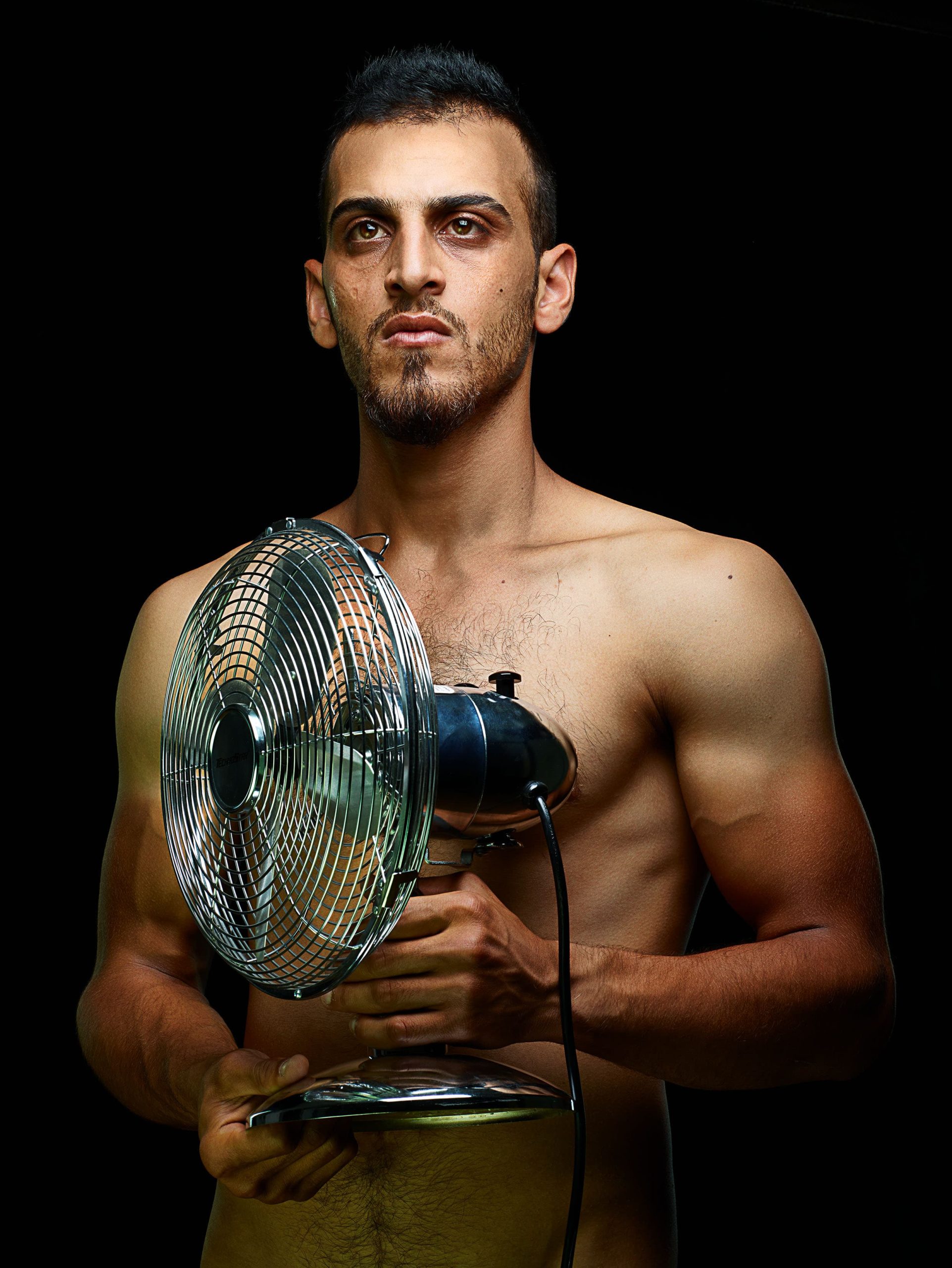
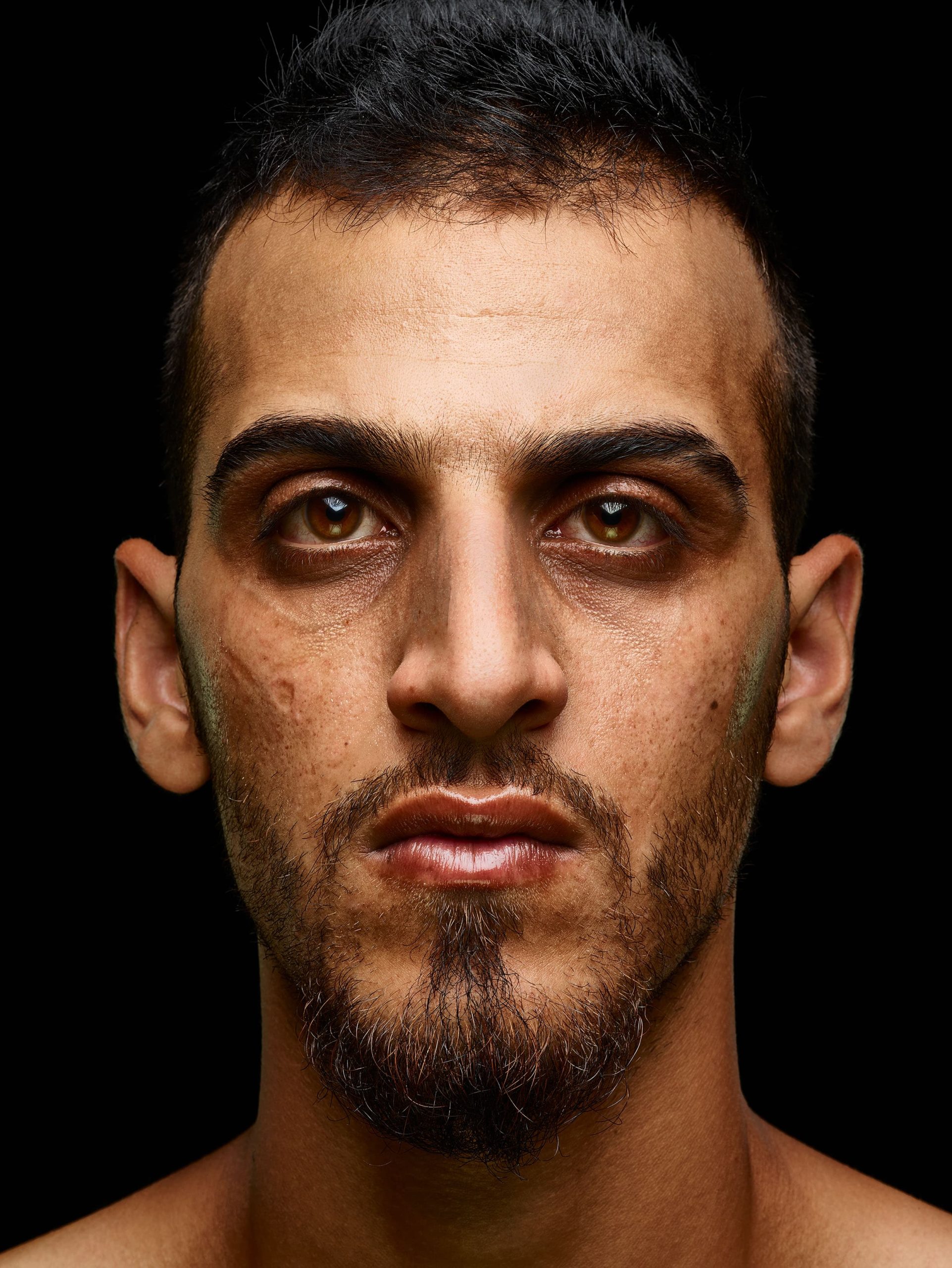
S. S., 24, Iraq, 16.07.2015
“When I look into a mirror, I can see that my eyes have changed. The bad things I have witnessed and all the stress have made them dark and hollow. After my parents separated, my dad moved out. We lived in constant fear because the Sunnis and the Shiites were fighting each other and people kept disappearing. Every single morning before my dad left for work as an electrician, he came over to our house and hugged me and kissed me goodbye, crying.
One morning when I was fourteen, my dad didn’t show up. I haven’t seen him since. My family tried to find out what had happened to him and some people told us what they had witnessed: My father was walking down a street, when two cars stopped next to him. A couple of Shiites grabbed him, forced him into one of the cars and made him sit in the middle seat between them. Then they drove away. We later found out that the license plate number doesn’t exist. To this day, we don’t know whether my father is dead or alive. Not knowing is killing me. I have an older brother, but he couldn’t flee with me because our family spent all our money on getting me out of the country. We knew that one of us had to stay behind to protect our mum and our stepsiblings. The girls never leave our house because outside, they could get kidnapped or raped. They shouldn’t be in Iraq even for one more minute, but fleeing is too dangerous and too expensive for them.
When I said goodbye to my family, we cried a lot, but they were glad that leaving meant that I wouldn’t have to join ISIS. All I want is to bring my family to safety, too. I want us to live a normal life here, to go to school and to continue working. I am their only hope now.”
M. A., 27, Iraq, 16.07.2015
“My wife and I have known each other for eight years. We were friends at first and then we fell in love. Our families had to agree to the wedding, so we waited for each other for four years without kissing or holding hands until we finally got married. Five months ago, our little daughter Shames was born. Her name means sun.
I made good money as a barber back home, but my true passion is singing. My wife has always wanted me to be happy and she likes my voice, so she saved money to support me to build up a singing career. Whenever there was a wedding or a big party, I would perform for the guests. More and more people liked my singing and I even had four music videos, which were broadcast on TV. It was my wife who made all that possible.
But the regime in Iraq has never allowed people to live normal and free lives. Singing and wearing long hair is forbidden, and I did both. One evening I did a live concert whensuddenly, a group of people forced their way inside the concert hall and shot at the stage. An old lady took my hand, pulled me away, and hid me in her house.
A couple of days later, I went back home to my wife. There, I received an envelope with one bullet inside. I knew what that meant: “Either you leave or you die, but you are going to stop singing either way.”
We decided that I had to flee the country and try to bring my wife and my daughter to me afterwards. I had to leave my family behind and abandon my barbershop. On my journey from Iraq to Austria, I couldn’t call my wife for 17 days. When I was finally able to let her know that I was okay, she barely said anything on the phone. I only heard cries and


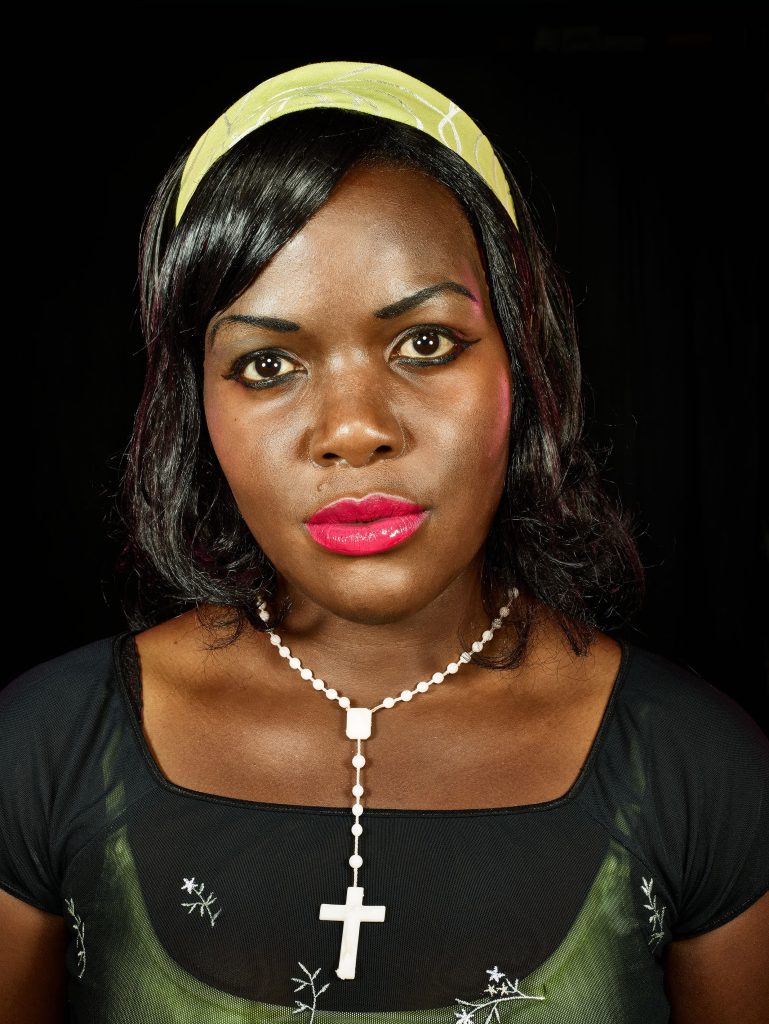
L., 24, Uganda, 27.07.2015
“Everyone who can speak can sing. Making music has helped me so much during my life: I even got sponsorships for singing in school, which made my parents tremendously proud. I studied journalism and was hoping to get a job as a radio or TV news presenter in Uganda. Thinking about home is very hurtful and I don’t want to talk about why I have decided to leave the country. There are a lot of issues in Uganda and people were threatening me. But I am a very positive person and only try to think about good things.
There are thousands of people here in the refugee camp of Traiskirchen, but I am okay with that. Every single one is a human being and you can’t just leave someone out. It is better than staying in our home countries, so why should I complain? The happiest moment of my life was when my daughter Tracy was born. I was seventeen and a friend was with me, holding my hand. Afterwards, somebody handed the tiny baby to me and I was finally able to hold my daughter gently in my arms.
I miss my family so much and I don’t know when I will see them again. At least I know that my two kids have nice grandparents who take good care of them. In the refugee camp, I’ve met three nice people from Uganda and when we spend time together, it almost feels like having a family. My best friend here will teach me how to swim some day. Sometimes, I sing for her in the camp.”
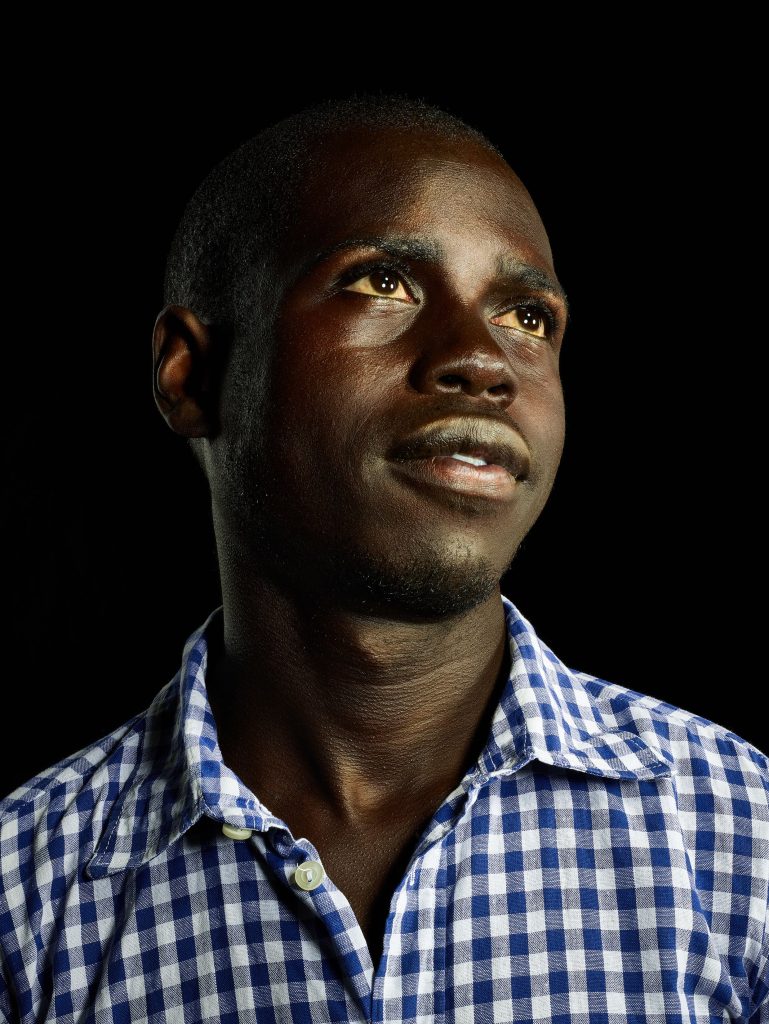
M. M., Uganda, 27.07.2015
“I don’t want to live backwards.
I try not to think about Uganda too much: About my grandmother who was like a mother to me, because my mum had died when I was very young. About going to school and about art, my favourite subject. About the three men in soldier uniforms who came to our house one night and told my father to get into their car. About waiting for him to come back home and finally realising that he wouldn’t. About that morning when my grandmother came to my school and told me that she had found my older brother, dead, and that I had to run away from Uganda and never return. Or about my last call home to my grandmother when I was on the run in Turkey, before I lost my phone with her number on it.
I have so many questions: Where did my father go? What happened to him? Who killed my brother and why? Did it have something to do with my father, or with politics? But nobody told me and I have to accept that I will never know. If I keep thinking about Uganda, I will never be happy or successful here.
So I look ahead. Whenever I feel sad, I put on some music and try to block out my old memories. Instead, I think about the future: About how the friends I made at the refugee camp are like siblings to me and make me feel happy. About getting a job in logistics management. About God, who knows everything. About creating a new life. Everything will be okay.”
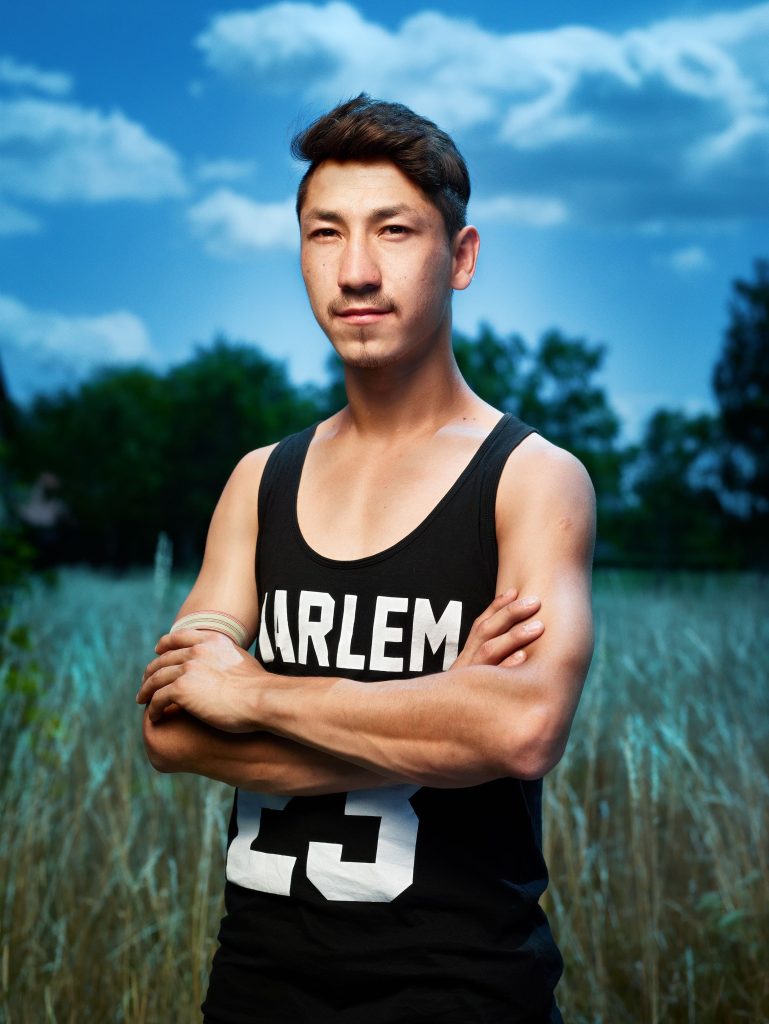
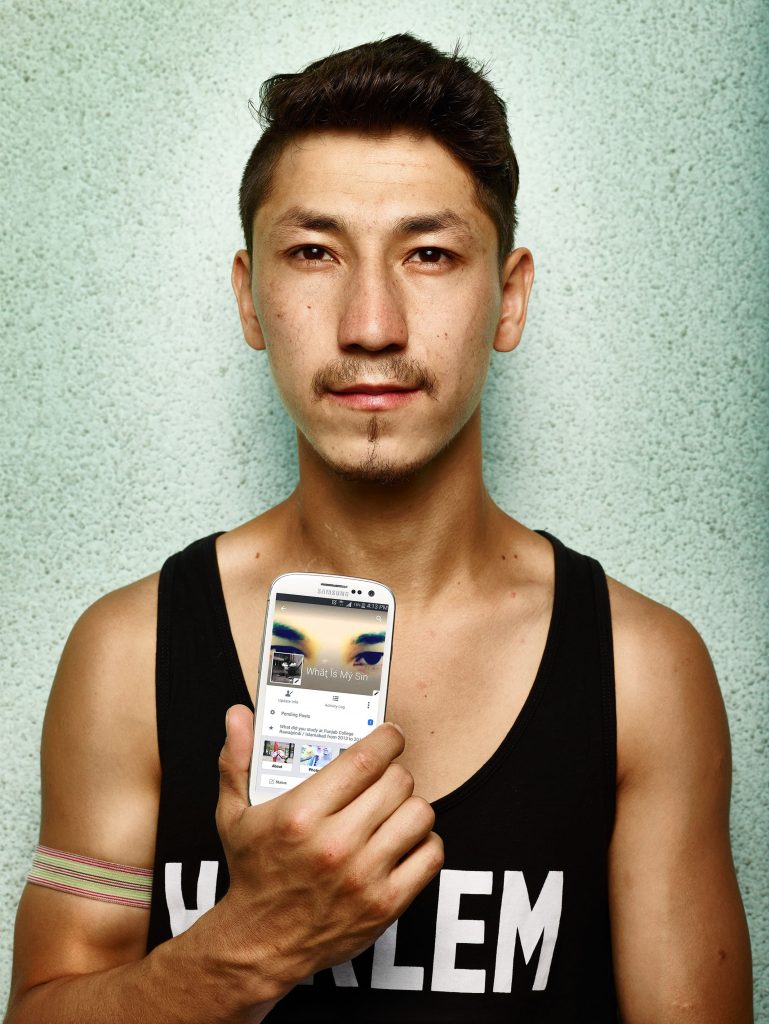
J., Pakistan, 10.07.2015
“I’d like to be a famous rockstar. In Pakistan, I sang in front of 20.000 people once because I won a singing contest. I speak five languages: Urdu, English, Pashto, Farsi, Dari and Panjabi. I am really good at Taekwondo and love to play football. My parents have always been proud of me. But two years ago, there was a terrorist attack in Parachinar and I got shot; one of the four bullets that hit me is still inside my leg. My parents wanted me to go to Europe to be safe, so I left them and my seven sisters behind. I was hoping to bring my family to Europe and to have a better life together. They all rely on me. Before I left, my mum gave me the band I am wearing around my arm. It contains a page of the Quran and is supposed to protect me.
I was travelling for one month and twelve days until I ended up in Austria. I started my journey with ten other refugees and two leaders. We were walking the whole day, over mountains and through jungles, often without food or water. After we crossed the Turkish border, we sat down to rest. Suddenly the police fired at us. I ran after one of our leaders as fast as I could. Somebody tried to shoot me but I kept checking where he pointed his gun and tried to avoid the shots while running zigzag lines. I was the only one of our group they didn’t catch, but I had to leave my heavy backpack behind. Everything I owned was in there: 1000 Euros, good boots, and clothes.
I was hoping that we could have a better life here. I would like to create something and do meaningful things. I want to get to know local people here, learn German and talk to them. But all I can do is wait. Often, I am hungry and weak and this whole situation has made it hard for me to think and concentrate.
The most important thing for me is my phone. I can’t afford long distance calls to my family with the 40 Euros we get per month. But I can keep in touch with them and my friends on Facebook and WhatsApp. I try to teach myself German with an app, and sometimes at night, I sing to the other people at the camp.”
H., 16, Afghanistan, 20.07.2015
“When I was eleven years old, I left Afghanistan together with my older brother who was thirteen at the time. But in the city of Quetta in Pakistan, our smuggler divided us into two groups and my brother and I got separated.
When I reached Iran alone, I didn’t know where my brother had ended up. I ran out of money and started working at a construction company. It was a very difficult time because the people I worked for cheated me. Whenever I complained that they didn’t pay me, they threatened to tell the police that I was in Iran illegally. After five years, I had finally saved up enough money to pay a smuggler to bring me to Europe.
I know now that in the meantime, my brother had lived in Pakistan and reached Austria three years ago. He lives at an asylum camp in Salzburg now. He goes to school where he learns German, English and Maths. When I also got to Austria with my mother some weeks ago, a friend from our village recognised us and told my brother that we were here. Two days ago, he took a train from Salzburg to Traiskirchen to meet us. We were so excited and happy to finally see each other again for the first time after five years.
I think that the government of Austria wants to send us away again, but I can’t bear the thought of ending up back in Afghanistan. Every time I left the house back home, I was afraid of the suicide attacks and the fighting. I’d rather die than live in constant fear again.”
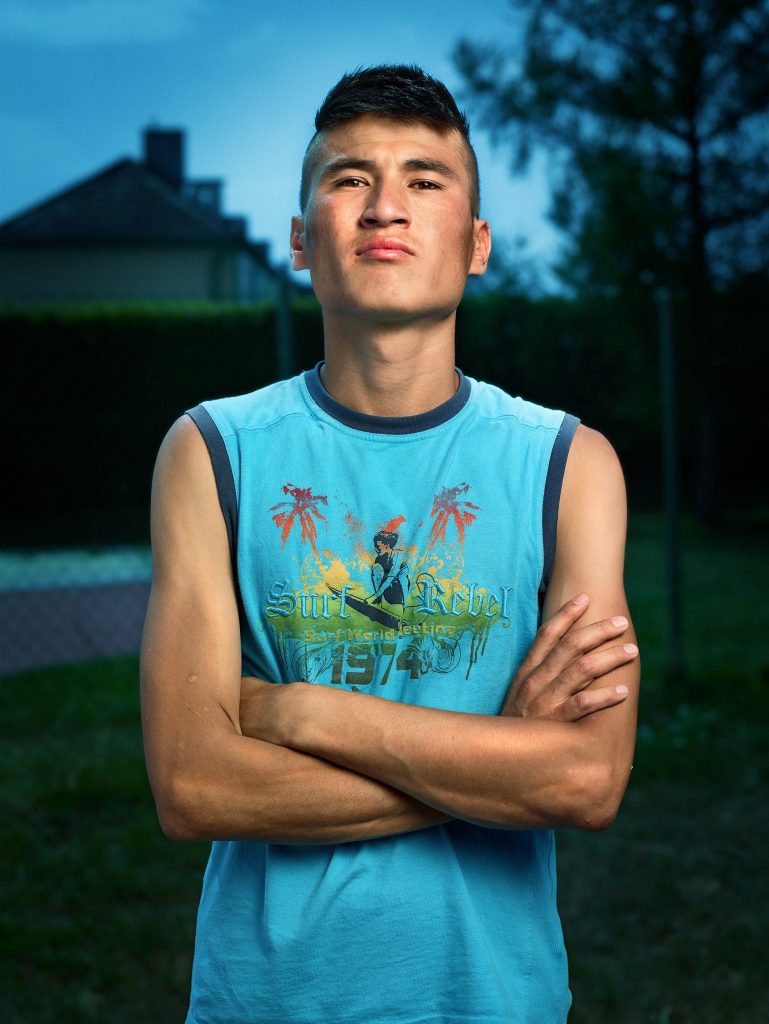
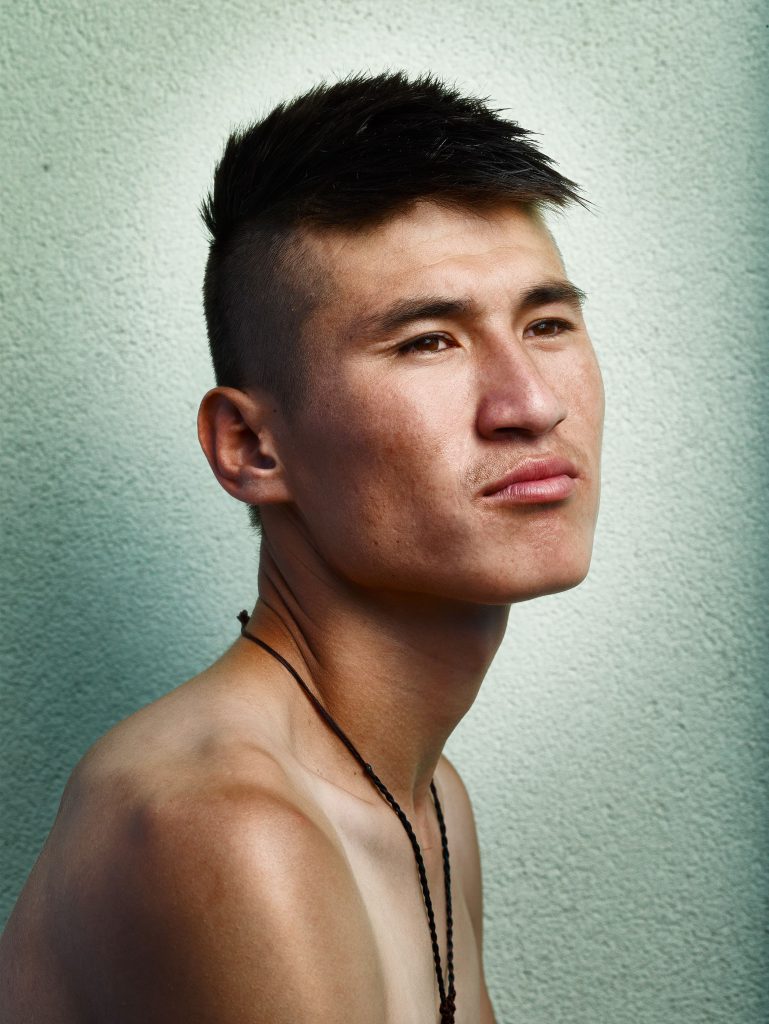

A. H. H., Afghanistan (immigrated to Pakistan at age 2), 06.08.2015
“Why do we get killed?
I don’t understand it. We just want to be left in peace and don’t want to hurt anybody. Please, give us a reason why you are killing us. We didn’t do anything.
The killers came to my town in Pakistan with lots of explosives. One bomb exploded nearby, so I ran to the roof of my house. There was dust and smoke everywhere and when I got down to see what had happened, I saw hands and other body parts lying around. I cried and was so scared. Nobody can have a life in such a place.
My mum said to me that I should leave the country and that I am my family’s only hope. Our father had died when I was a kid.
All I wish for is love and peace, and to be with my younger brother and my mother. That’s all I need. It was so difficult to leave them behind in such bad conditions, but we didn’t have enough money for the three of us. To pay my journey, my mother sold the house. She lives with relatives now.
My happiest moments of my life were when I was at home with my mother and she cooked for me. My mother is my world. She taught me to behave myself and not to fight, especially when I go to another country.
I would like to be a cricket player in England. The leaders of Pakistan are bad, but the cricket players are really good. They play with their hearts. But England won’t take refugees anymore, so now I am in Austria. I can play football here, which I wasn’t able to do in Pakistan because there were no football fields in our town.
I loved going to school and learned English at an institute. In Pakistan, the schools are not good enough. There are not enough teachers or proper facilities. But going to school is not just about getting an education; it’s also about finding friends and growing up. They should have schools in the refugee camps, then we could try our best to get an education.
Religion is important for me. But everybody should follow their own beliefs and it doesn’t matter if you are Muslim, Hindu or something else.”
A. A., Afghanistan (immigrated to Pakistan at age 2), 06.08.2015
“There is a saying in my language: ‘In the forest, there is everything- water and mountains.’ It means that there is a good and a bad side in every human.
The other day I wanted to shake hands with a guard in my refugee camp as a sign of friendliness and peace. I have seen bad things in life and wanted to leave them behind. But the guard wouldn’t take my hand and just said: ‘Why should I?’ So I just wished him a good night and walked away.
My father taught me one thing when I was 9 years old: Never cause pain for another human. Doing so is a big mistake and God will never forgive you. Love humankind and never fight.
Five years ago, my father died of a heart attack because of the bad situation in Pakistan and all the tension. But I am still trying to be a good son. His wishes and thoughts are mine now. I want to see every human happy, whether they are my friend or somebody else. I don’t care what religion somebody has, because we are all human. I hate it when people are shouting and fighting in the refugee camp. I try to be honest to everybody. I am trying my best, because Austria is a really lovely place.
I have been a refugee for almost my whole life. We went from Afghanistan to Pakistan when I was two and we were unable to get permission to get a proper education or to rent a house. My dream is to be a doctor, but I was never able to do what I am truly passionate about. I had a job in a shop at a bazar, but I had to stop working because I received multiple death threats and don’t even know why. My mum said that she couldn’t bear it if I was killed in front of her eyes. That is why I left.
Ever since I went away, I haven’t been able to stop thinking about my mother, my little sister and my little brother. My mother has heart problems like my father. She had a heart attack when I got to Austria, but she has no money to get proper treatment. I don’t know how my family can get food and protect themselves. I don’t know how they can survive.
I can’t forget them. Because of them, I am alive. Without them, I have nothing. Just a body, no soul, no feelings. When I see my mum again, it will the happiest moment of my life.”
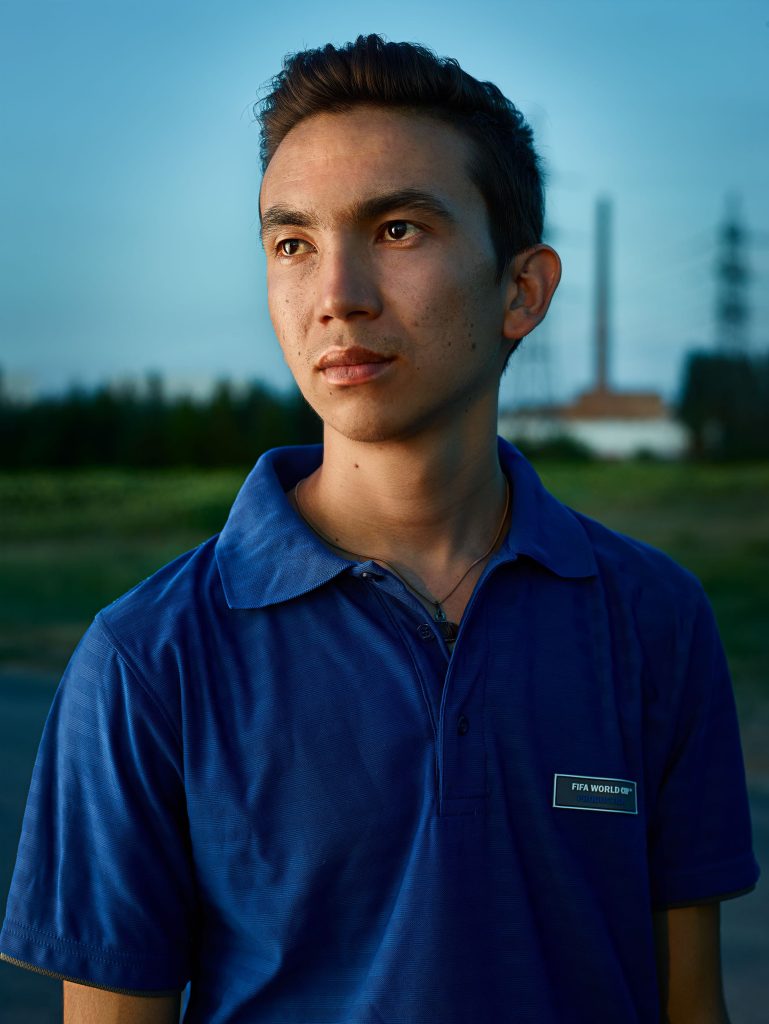
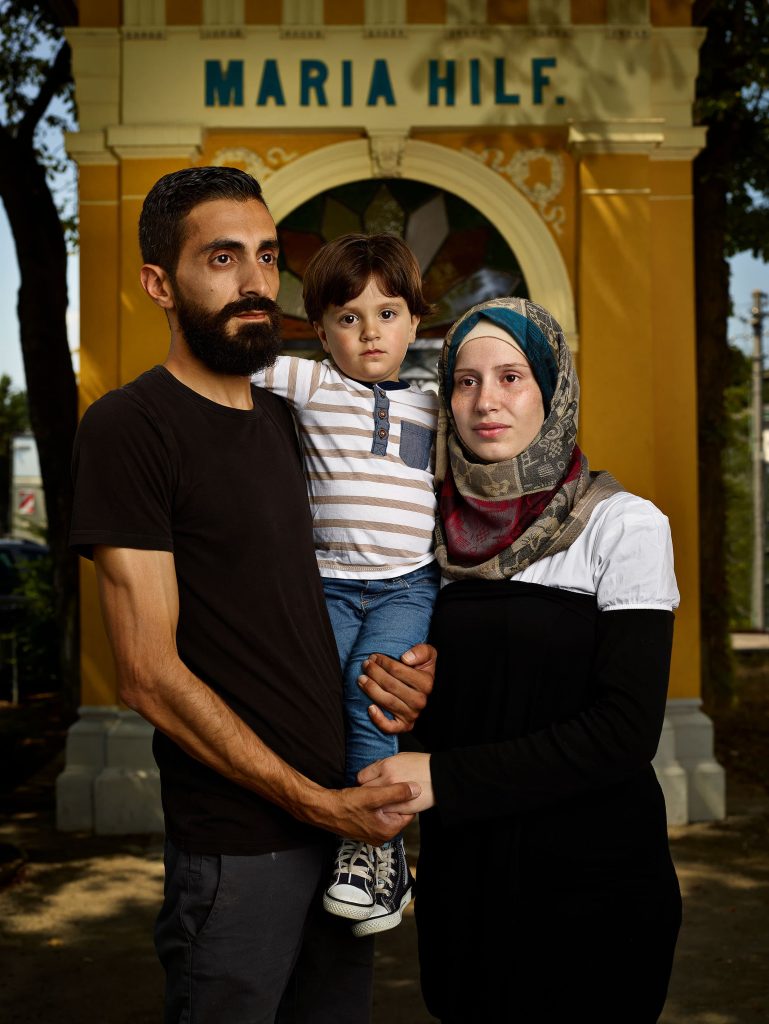
M. O., 33, Syria; N. O., 22, Syria ;A. A. O., 2.5, Syria, 07.08.2015
M.:
“Life in Syria was amazing before the war started. I was getting a good salary as a showroom manager for a shoe company, and even though the governance was bad, everything else was good. My wife Nour was studying English. I remember thinking to myself when I first met her ‘I love this girl’. We got married and when our little boy was born, it felt like a miracle.
But the big war had started and I lost my job and my home. Everybody was killing everybody without reason. The government wanted to send me to the military, but I could not accept that because I would have had to kill my brothers. We decided to move away so our son can have a better future.
We went from Syria to Turkey and stayed in different cities. From Turkey to Greece, we had to take a rubber boat with 42 people on board and no captain. The man who gave it to us just told us to steer towards a light. The sea was very dangerous. When I looked into the water, all I saw was darkness and I heard voices telling me they would take away my family. In a situation like this, you have to believe in God and trust him.”
N.:
“In Austria we’ve made amazing friends. We want to thank them and all the helpers so much. We are so glad to have met them, because the situation in the refugee camp is very bad. Hundreds of people have to sleep outside and many of them are sick and get rashes but they don’t receive any treatment. Inside, there are lots of fights between people from different countries. Sometimes, babies go without food for 20 hours. Some people get a transfer after two days, some after months. There is no system at all. The company running the camp doesn’t care about anyone. There are many rules, but no rules for respect.
Our child needs proper food. We have to stand in line for two and a half hours to wait for a meal here. One day we bought spaghetti at a store and wanted to bring the food inside the camp. But the guard took it away and said: ‘My manager doesn’t allow that.’ I would like to take the manager to
A. R., Afghanistan, 12.08.2015
What would you like to be doing in 10 years’ time?
“Playing for the Austrian football team.”
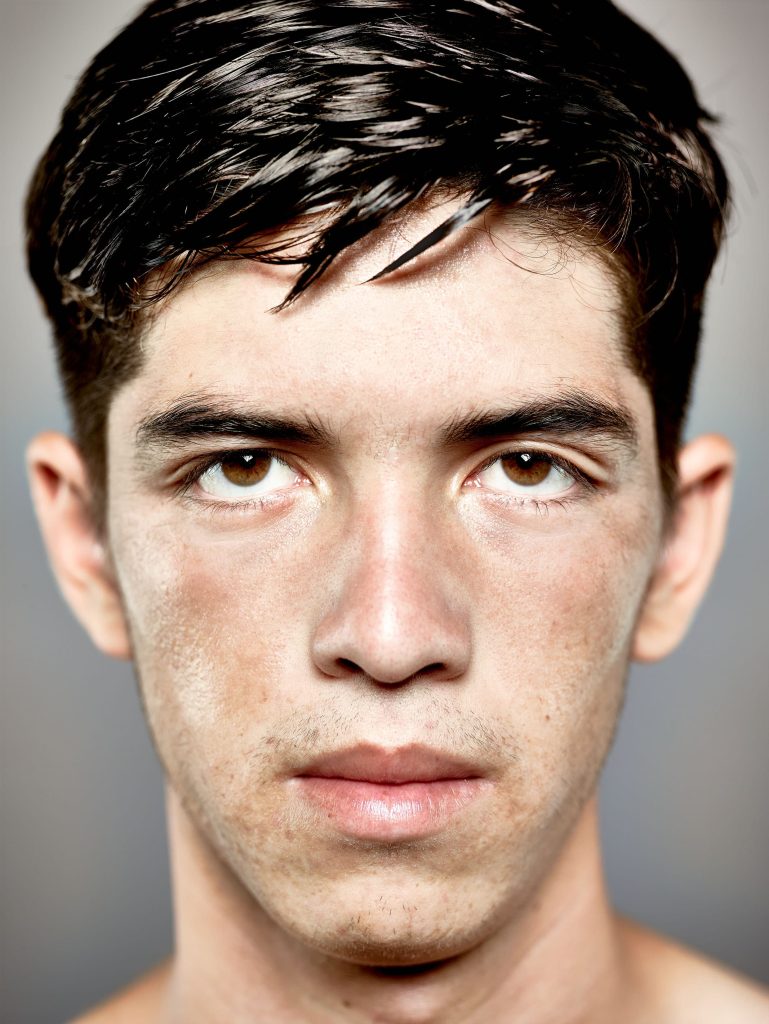
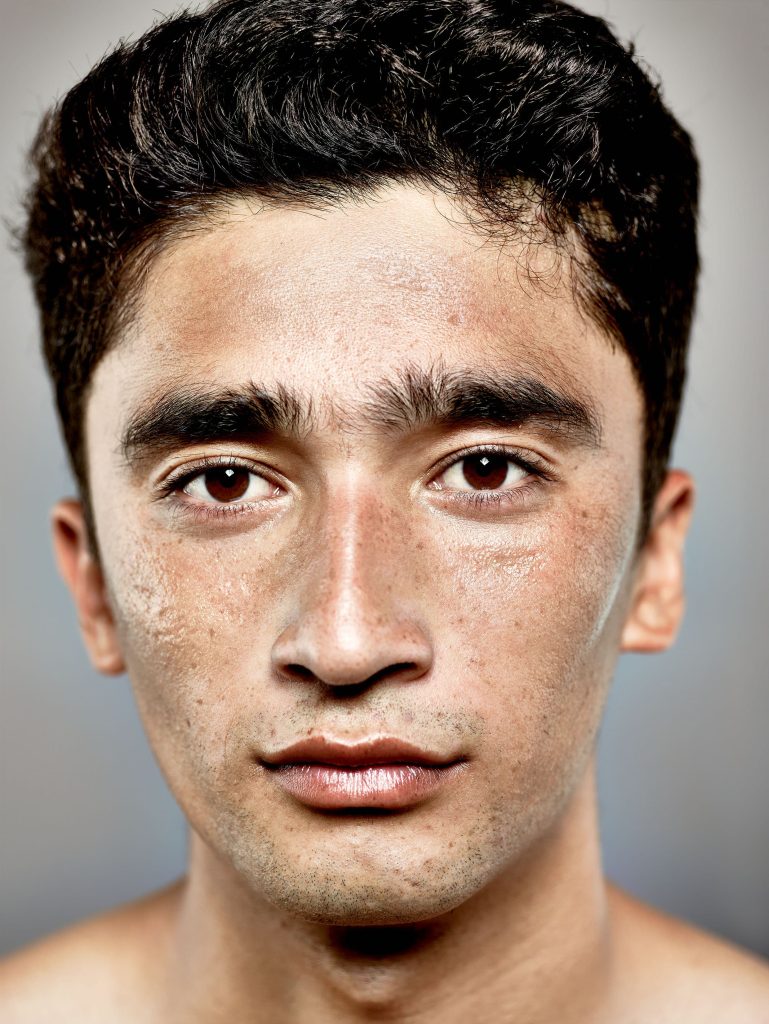
R. R., Afghanistan, 12.08.2015
What was the best thing that ever happened to you?
“Reaching Austria, safe and sound.”

J. M. N., Afghanistan, 12.08.2015
What makes you happy?
“Dogs, especially German Shepherds.“
What makes you sad?
“I’m always happy!“
A. S., Afghanistan, 12.08.2015
If you were granted one wish – what would it be?
“Peace.”
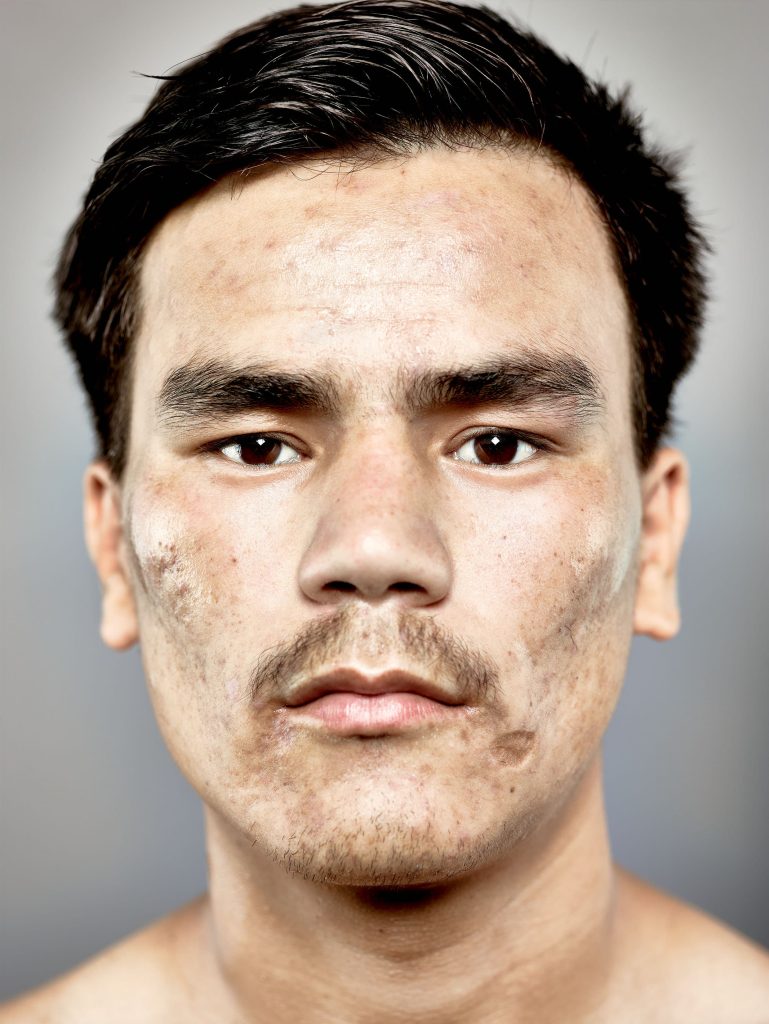
A. R., Afghanistan, 12.08.2015
If you were granted one wish – what would it be?
“To join the Austrian police and work for the country.”
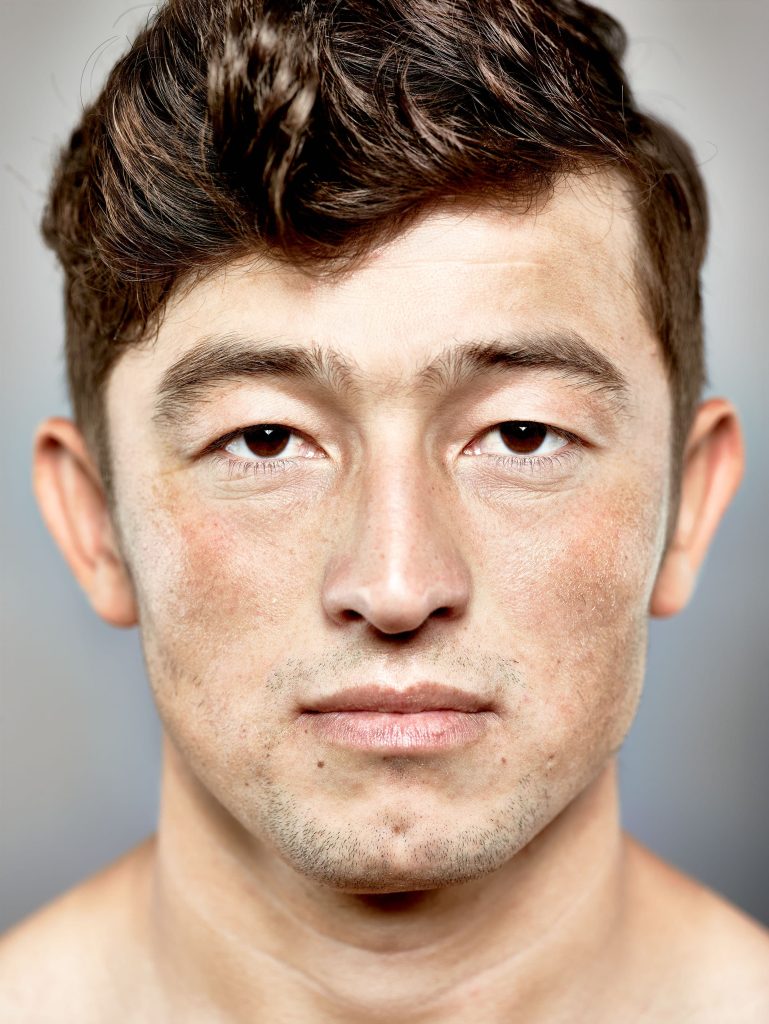

R. R., Afghanistan, 12.08.2015
What was the best thing that ever happened to you?
“Reaching Austria, safe and sound.”
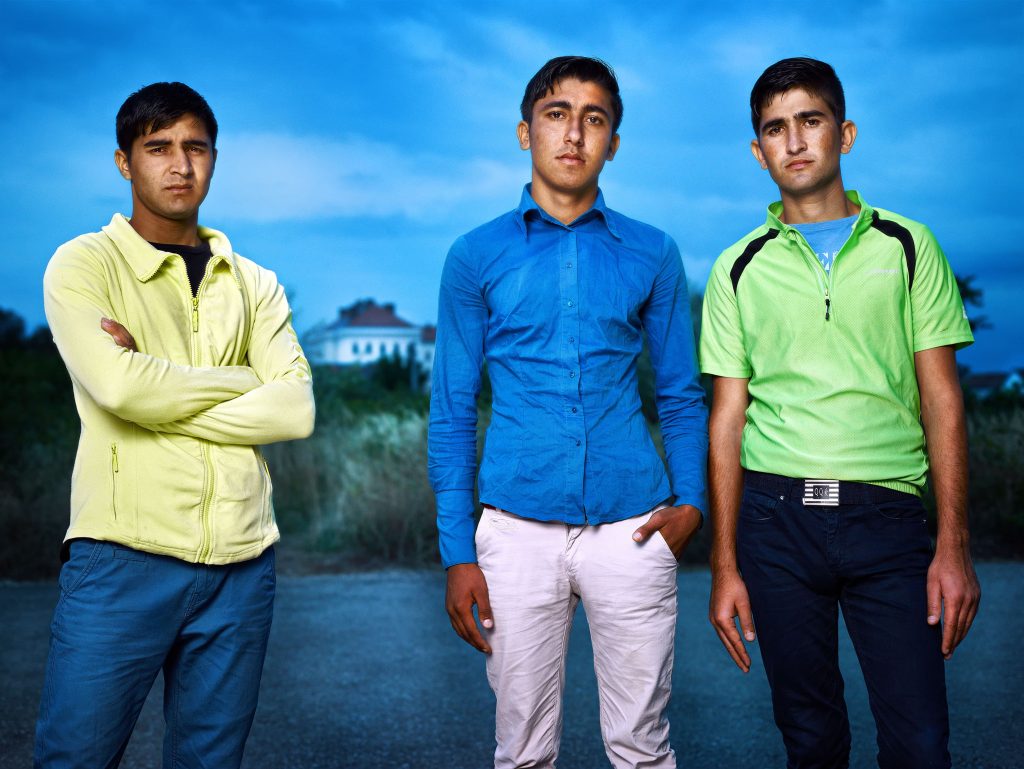
R., 16, Afghanistan, 02.09.2015
The Taliban killed my parents when I was eleven years old and I still cry many nights because I can’t forget them. My brother came to Austria before me and is studying to become a policeman. I followed him so we can be together.”
K., 17, Afghanistan, 02.09.2015
“I am in love. She’s in Afghanistan and we really miss each other. But we are not engaged, so she can’t come here. It’s not allowed in our religion.”
N. U. A., 16, Afghanistan, 02.09.2015
“I have been in Austria for two months, but I feel like nobody cares about us. I want to study but I’m not allowed. Ever since I got here I forgot how to laugh. I forgot everything.”
M. A., 21, Iraq, 13.09.2015
“I miss everything about Baghdad: My neighbours, going to school, and playing football with my friends in the afternoons. Our family lived in a 300 m2 house. This was enough space for my parents, my five brothers, my two sisters, and me. But when I was 19, terrorists came to our area and told us that they would kill us if we didn’t leave. They murdered some of our friends. My family went to Mosul, but eventually, the terrorists came to Mosul too and we had to go to Turkey.
My father loves us very much and wanted us to be far away from the terrorists, but he was afraid of sending his children across the sea from Turkey to Greece. So at first, he only sent two of my brothers. When they arrived safely in Europe, he sent the next two. When my parents learned that all six of us had survived the journey, they were very happy. My two younger sisters are still in Turkey, but I don’t want them to come here illegally. I would fear for their lives, because I know how dangerous the journey is.
All of my five brothers are in Austria now, but we are not together. Even my brother Mustafa, who journeyed with me, got sent to a different part of Austria. I would like to have a home together with my brothers. I don’t understand why they separated us.
I want to build a family of my own someday – I’d like to have two daughters and three sons. But mostly I hope the war ends so I will be able to go back to Iraq. I dream of seeing everything again: My relatives, my family, and the place where we used to play football.
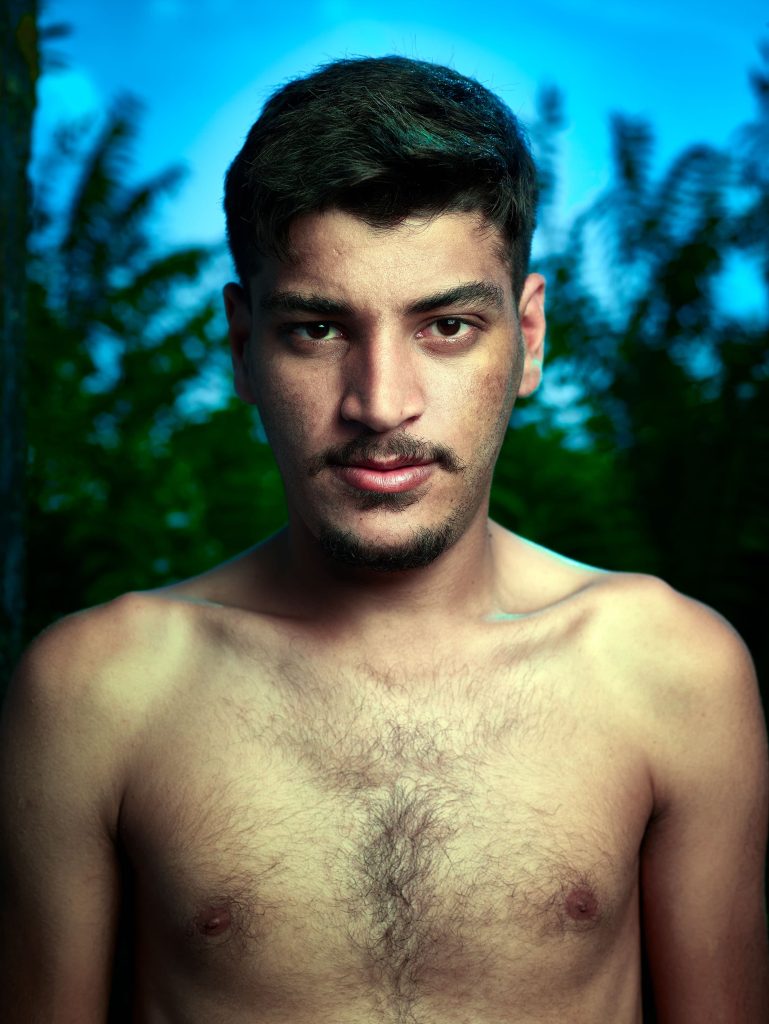
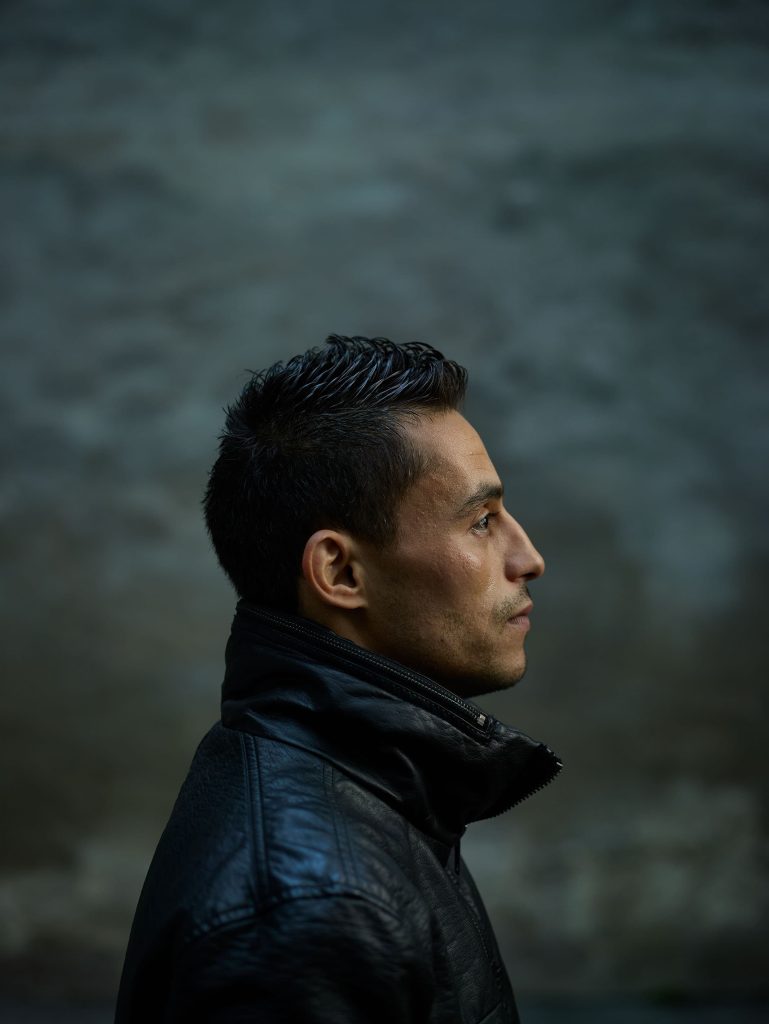
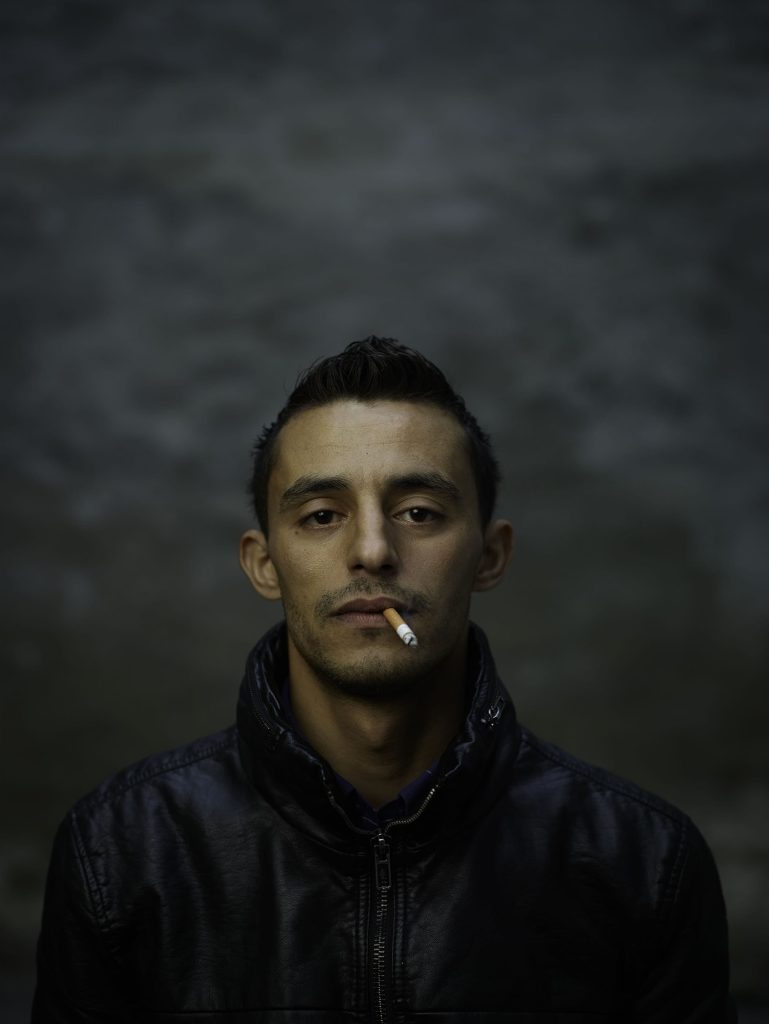
S. C., 26, Tunisia/Syria, 20.09.2015
“I have always loved getting to know different kinds of people, cultures, and languages from all over the world. Thanks to my job at a hotel in Tunisia, I speak many languages: Arabic, French, English, Italian, Russian, Greek and a little bit of Spanish and Albanian.
When I was still living in Tunisia with my mother, ISIS terrorists repeatedly approached me because they wanted me to work for them as a translator. When I refused, they tried to scare me into doing it: One time, they kidnapped me, beat me and then threw me out of a moving car. They also sent me a letter, which said that they would not stop hurting me and eventually kill me unless I did what they wanted. I was very scared and knew I had to leave the country. I would not work for people who kill others.
One year ago, my father got shot in the leg in Syria, so I traveled there to take care of him. I knew I couldn’t stay in Syria for long because it was too dangerous, but I also couldn’t go back to Tunisia because ISIS has ways of knowing how to find people. So, I decided to go to Europe.
I arrived in Vienna nine days ago. After the exhausting walk from Hungary, mostly carrying a child on my shoulders, I had problems with my feet and got treated by a doctor at a railway station in Vienna. After the first night, the organisation that treated me didn’t have spare beds any more, so I spent the night at the station. I had been planning to go to Italy from Austria because some relatives live there, but I had already run out of money. So, I decided to make the best of my time and translated for other refugees. I helped people from Afghanistan, Syria, and other countries to find their way around the platforms. And then she found me.
An Austrian girl walked over to me and asked: ‘What are you doing?’
‘Helping’, I said.
‘But you need help yourself!’
This is how I met Hanna. I immediately felt that she is a good person, and I explained my situation to her. She didn’t want me to sleep outside again and brought me to her apartment, where she and her roommates let me stay in their living room. I couldn’t believe my luck that I had run into a person with such a big heart.
I have been living with Hanna ever since. She is kind and funny and even though she has to study and work, she always thinks about my problems. When I decided to stay in Austria, she took me to the police in Vienna to get registered. When they arrested me immediately and treated me unfairly for two days, she took me to an organisation that helped me defend my rights. One time, Hanna spent six hours in a waiting room with me until my number came up. Another time, we visited her boyfriend’s family and everybody was incredibly nice to me. I’ve met many people in Austria who just take others as they are and help them, regardless of their religion, financial status, or looks. This is something that touches my heart. I am so very lucky.
The only thing missing now is a job. Not being able to do something and depending on other people’s help is hard. I want to give back and to build a new life in Austria. I am young and qualified and hope I can start working soon. But for now, I am glad to be here. Sometimes when I wake up in the morning in Hanna’s apartment, I don’t believe my luck. Then I slowly open my eyes and think: ‘Yeah, I am alive. I am in Austria.’”
B. H., 31, Syria, 04.09.2015
“Before a rocket bomb hits, you can hear it. You hear the sound it makes soaring through the air towards you, getting louder and louder.
On November 28th of 2012, my father and I were sitting in our living room in Syria, talking to each other. It was 10 p.m. and the rest of my family was at my sister’s house nearby. Suddenly, we heard the noise. A rocket bomb hit our house and everything went black.
It stayed black.
The next thing I remember is that I woke up in a hospital. There was a bandage covering my eyes, some doctors were talking in Turkish and I didn’t understand a word. Then, somebody translated for me: ‘It’s January 12th of 2013. You have been in a coma because you were injured in a bombing. Your father didn’t survive. You are in Turkey now because your family transferred you here for better medical care.’ I was so afraid because I didn’t see anything, but the doctors kept saying: ‘Relax, you will be able to see again when we take the bandage off.’ Later I found out they had been lying to give me hope.
When I realised I was blind, I felt like I had lost my life and the ability to provide a future for my wife Doaa and myself. My only hope is to recover and to be able to work again.
God gave me patience. Now I am in Austria with Doaa and my little brother Bashar. They helped me get through three very difficult years. I still have hope that the doctors in Europe will be able to help me. My right eye has been removed, but I can feel my left one. I can see white light very weakly.
I would like to study, do sports or work, but there are no organizations for injured refugees like me. I feel forgotten and lost. Somebody told me that Austria was not exposed to war for a long time and therefore the people are not used to dealing with a wounded person like me. It is difficult for them to look at me and that makes me very sad.”
D. H., 20, Syria:
“I want to build a happy future with Basem here in Austria. My biggest wish is to have a child and a home of our own.
When I received the message that he was wounded in the hospital, I was so afraid that I fainted. But I stayed with him all this time because I love him, and I love that he loves me. He is a kind, friendly and respectable person and I like that we laugh a lot together. Laughter is medicine for the heart.”
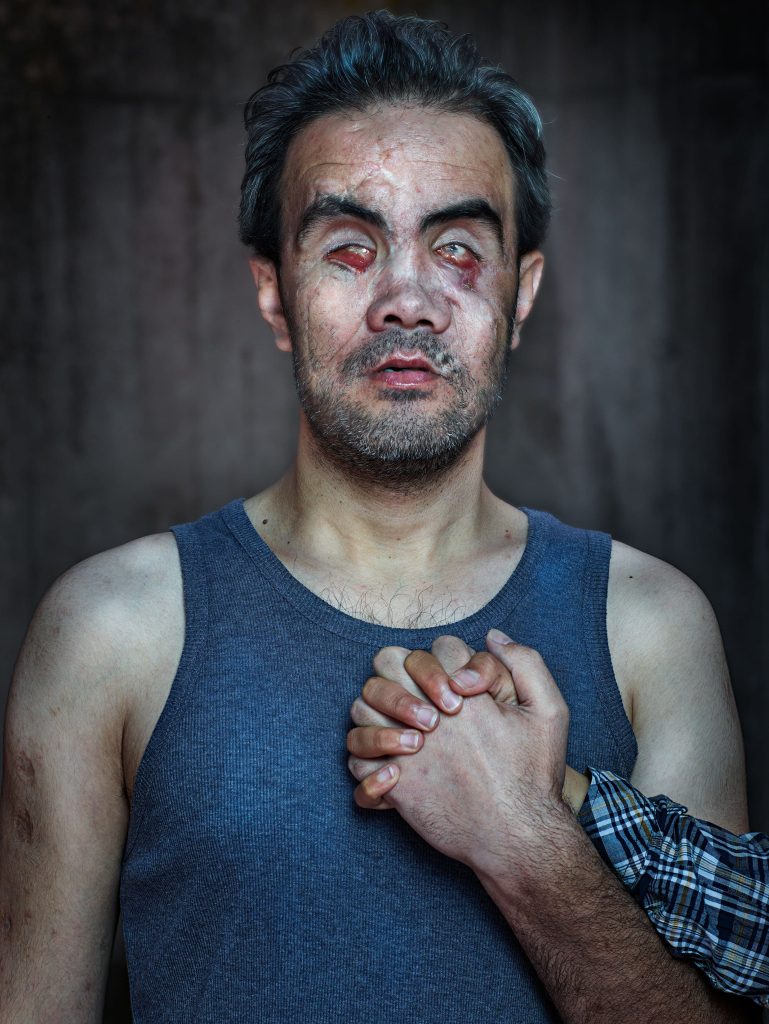

S. (17), R. (25), M. (1 ½), Syria, 13.09.2015
S.
“Children need safety. They shouldn’t have to watch people getting killed.
That’s why we wanted to get away from Syria and started to save as much money as we could for the journey. We had heard and read a lot about Austria – that it is a good country to live in and that Austrian people are nice. We wanted to take our daughter Malak and our unborn baby to Austria so they could grow up there, learn German and have a safe future. Austria became our dream. When Assad’s army wanted Rakan to fight for them, we knew the time had come and we left immediately.”
R.
“The scariest part of the journey was getting across the sea from Turkey to Greece because only Rakan knows how to swim and the boat was rocking so much. After that, we had to walk to Macedonia and then to Serbia, which was very exhausting for Sara because she is pregnant. Especially in Serbia, she was crying a lot because she was so afraid of the Mafia. She feared for Malak and our unborn child and she also got sick. When our money ran out in Serbia, it was the worst thing that could have happened. How were we supposed to get out of that country now?
Then, a miracle happened. A group of people from Syria saw us and decided to help. Every one of them gave us a little bit of money. Some gave five Euros, some more, and in the end we had the 1,800 Euros we needed to get across the border. We don’t know where these people are now, but we think about them a lot and are so thankful to have met them.
With their help, we were able to reach Austria and are so glad to be here. Our baby will be a girl and we are praying for her to have the best life
H. K., 37, 30.10.2015
“My wife Halimah was only 26 years old when it happened. We were walking on the pavement in Mazar-e-Sharif with our son Mohammad when suddenly, it felt like a war broke out. Eight Taliban attacked a government building nearby. The attack started at 11 a.m. and lasted until 9 p.m. In the end, they had killed many people, including my wife. I got injured and woke up in a hospital. I had been unconscious, but my little son remembers everything. He saw his mother die.
Often he has asked me: ‘Where is my mother?’. ‘She is In paradise’, I told him. He understands.
I used to be a teacher in Afghanistan. I had a job teaching Arabic, English, Farsi, Mathematics, Physics, and other subjects in a mid-level course for children. When Halimah and I got married six years ago, she didn’t have an education, but she was a very smart woman and wanted to learn from me. So my wife also became my student, and after two years, she was teaching pupils herself at our house for money. Halimah was an excellent mother, wife, and person, and she was smiling all the time. Sometimes she visits me in my dreams.
Three months after the attack I had recovered from my injury and I left Afghanistan with Mohammad. The two of us crossed Pakistan, Iran, Turkey, Greece, Macedonia, Serbia and Hungary together until we arrived in Austria. Now I am Mohammad’s father, mother, and teacher. He is my son and my best friend. He is a very intelligent boy and needs to play and go to school. I wish for him to be a famous scientist in the future. In Afghanistan, I taught him one English word a day. Now he knows 400.
One of my favourite sentences is ‘Peace is better than food’. In the future, I want to see peace all over the world. This is my sweet dream.”
M. K., 5, 30.10.2015
“My father is a kind man. We often play together and I can ask him questions about science and physics. My favourite places are school and kindergarten. When I grow up, I want to build a school myself.”
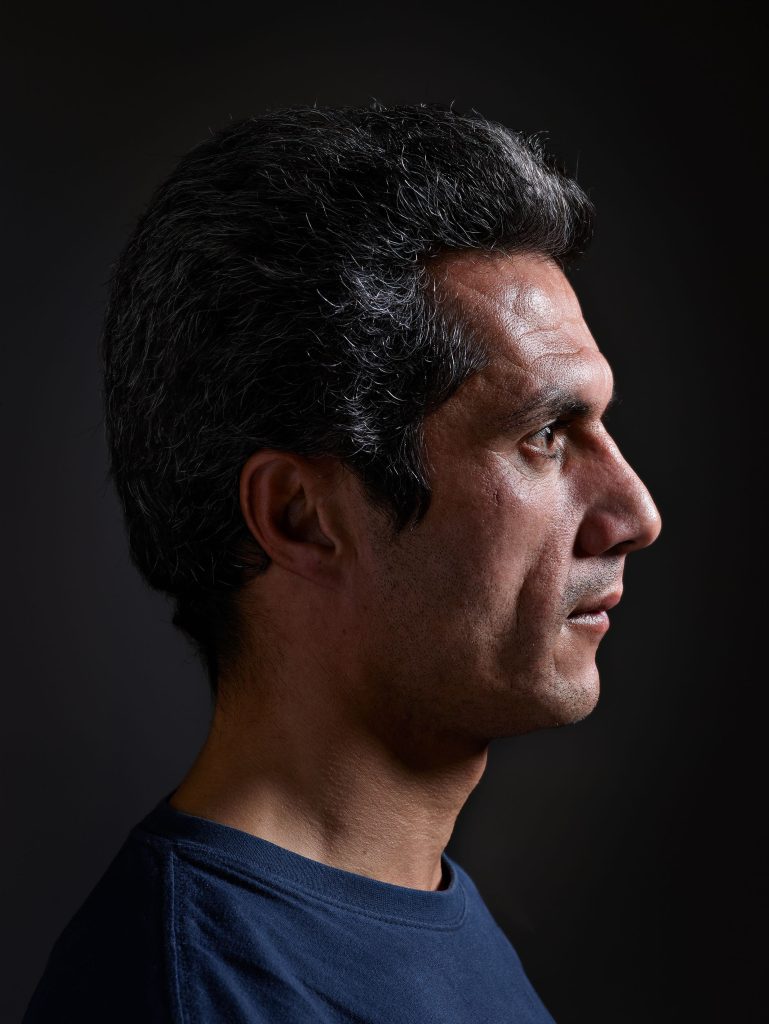
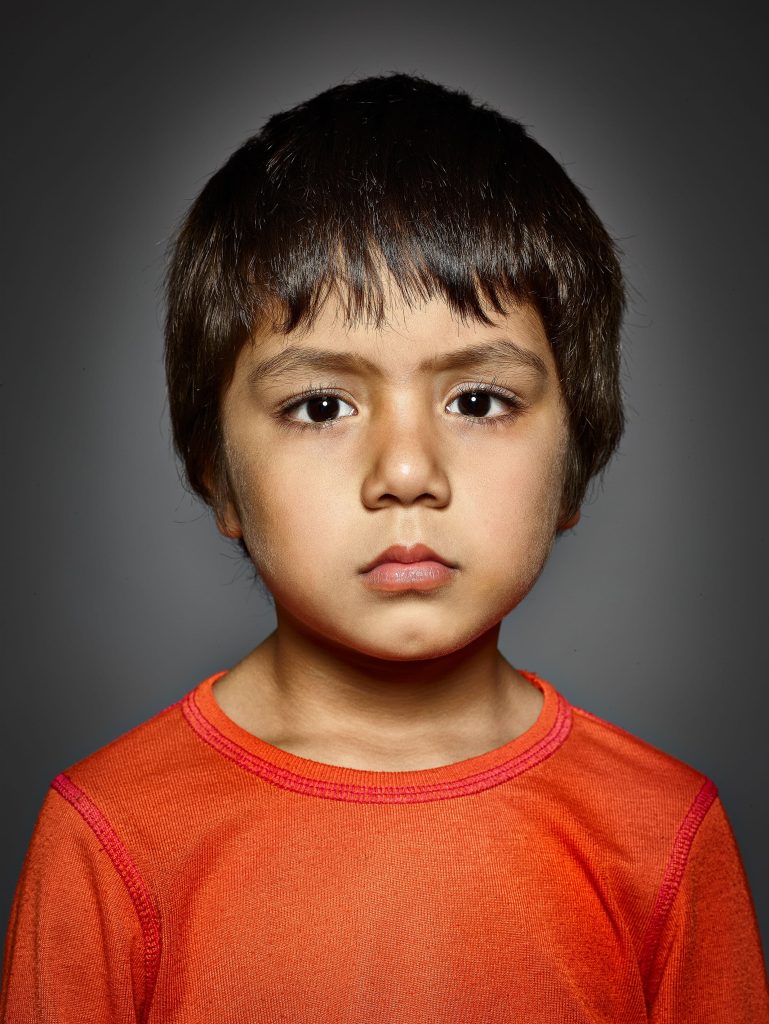
R., 17, 28.11.2015
“I love Hollywood movies like Titanic or Terminator and my biggest ambition is to become an actor. Until now, I never had the opportunity to gain acting experience but maybe I will be able to join a drama class in Austria.
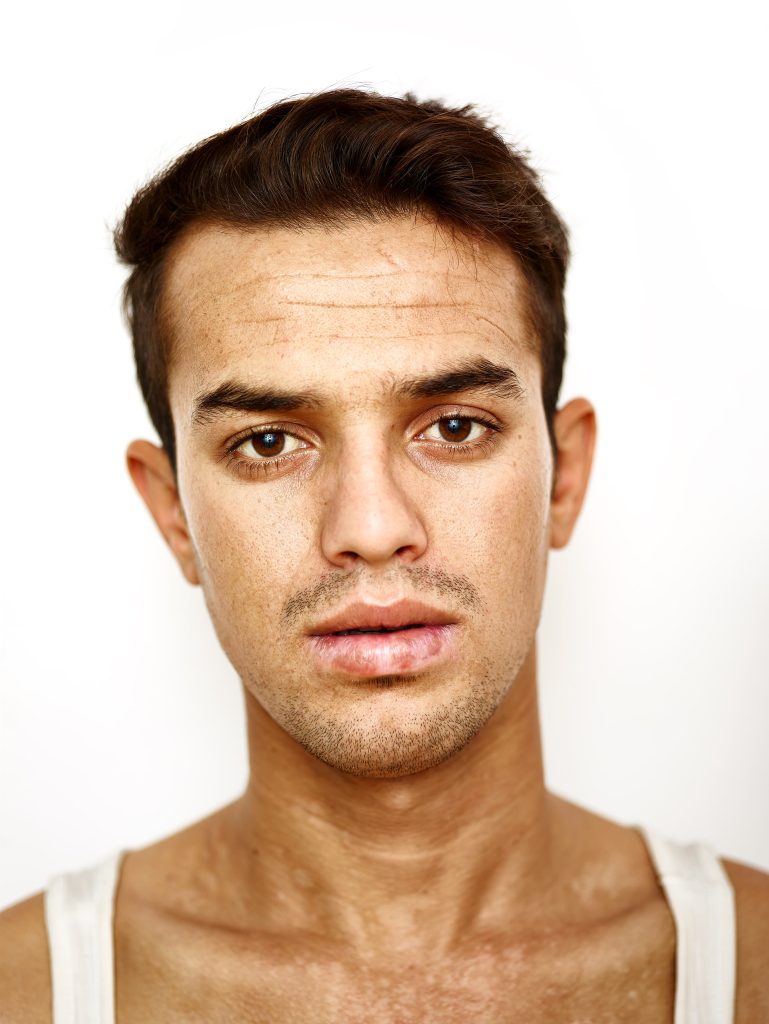

I., 14, 28.11.2015
“I really hope that I can go to school soon and that Roman and I will find a football team here that lets us play with them.”
M., 50, 28.11.2015
“Living in Iran wasn’t easy for us because Afghan refugees aren’t treated well there. Our children couldn’t go to school and my sons and I had to work hard to save money. After ten years, the Iranian government didn’t extend our visa and cut our passports in half. It wasn’t safe for us to go back to Afghanistan and therefore we decided to go to Europe, where we knew the countries to be humanitarian.
It took us about one month to get to Europe. The scariest thing was crossing the sea from Turkey to Greece in a boat with 40 or 50 people. Nobody was able to swim and when the boat filled with more and more water, we tried to scoop it back into the sea so the boat wouldn’t sink.
After ten years of being treated badly in Iran, we couldn’t believe the kindness of the people in Europe. At the Hungarian border, we met an Austrian police officer who treated us and other refugees very respectfully. When we arrived in Austria and experienced even more kindness, we decided to stay.
I didn’t come here to become a rich businessman. All I wish for is safety and that my children have the opportunity to study and have a normal life.”


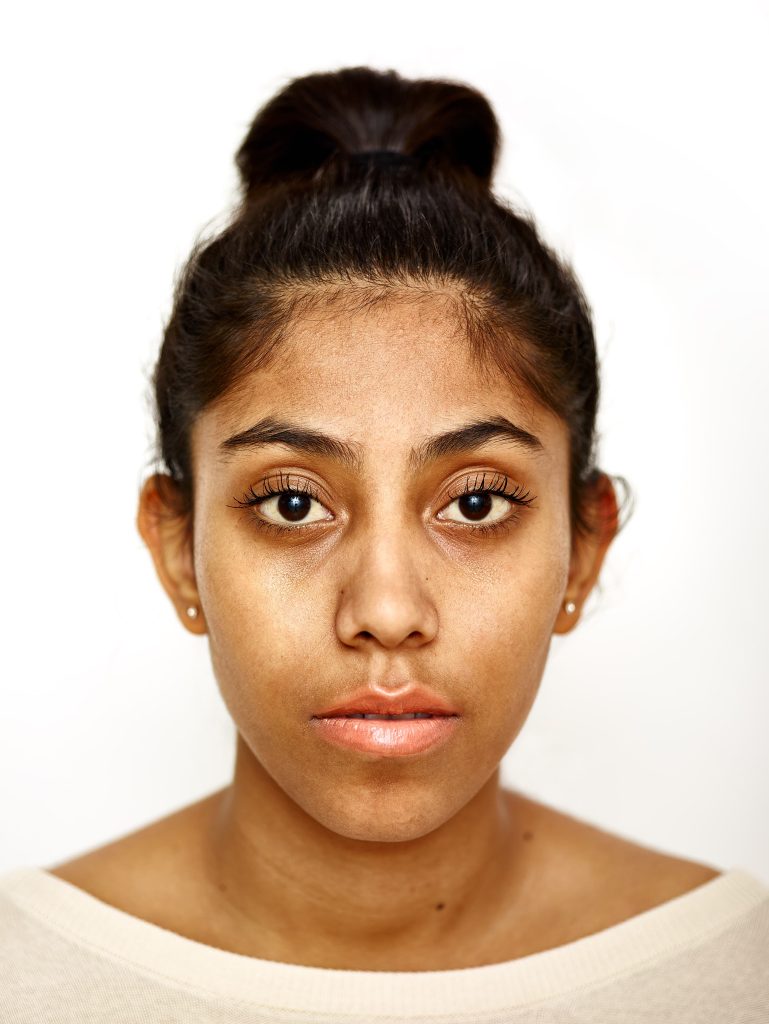
S., 15, 28.11.2015
“In Iran, there were so many limitations for us. All I wanted was to go to school with the other girls my age, but I couldn’t. This was the worst thing for me and now I can’t wait to learn German. Since we left Iran, I haven’t spoken to my two best friends and I really hope that I will be able to contact them somehow. When I grow up, I would like to be famous here in Austria.”
N., 38, 28.11.2015
“I had a normal life in Afghanistan until I was 18 years old and my 40-year-old cousin wanted to force me to marry him. He was part of an Islamist group that controlled my hometown Paghman. My cousin and his group threatened every other man who wanted to come to my family’s house to request to marry me. When I still refused him, they burned down our home and we had to flee from Paghman to Kabul during the night.
Three years later, I met a nice woman at a wedding in Kabul. She liked me and asked my parents to let me marry her son Mohammed. He is my husband now and we have three beautiful children: Roman, Sofia and Ismael.
After ten years in Kabul, my cousin found me again. We knew that this time, we had to leave the country to escape our enemies and so we fled to Iran. I haven’t seen my cousin since but I heard that he is married to a 10-year-old girl now. But I don’t want to think about him. He cannot control my life any more.”
A., 21, Afghanistan, 28.11.2015
“Education is the only weapon that can defeat our enemies.
The story of why I am here starts 15 years ago: My father was working for a political party that fought for the rights of our people, the Hazaras. In his opinion, Shias and Sunnis should not fight against each other, but stand together to improve the country. He was a very kind man and well known in our province Bamyan. Many people who had a problem came to our house because they knew that my father would try to help them. Whenever I was scared, he told me: ‘Try to study and to improve yourself and always be kind and help other people.’
When I was only six years old, he was murdered by the Taliban. After that, my mother escaped to Pakistan with my little sister, my four brothers and me. Nine years later, we thought it would be safe to go back to Afghanistan. But after some time, spies of the Taliban found out that our family was back and tried to attack us. Fortunately, we got help from the local people nearby and the attack failed. Afterwards, we complained to the governor of Bamyan but he said that they couldn’t protect us against our enemies. So we had to flee again.
On our way to Europe, I lost my family. At the Turkish-Iranian border, the smugglers separated us and I lost sight of them. That was one and a half months ago and I miss them so much; especially my little sister and my mother. It’s so hard for me to be separated from the persons I have spent my entire life with. But I have to stay hopeful that I will find them.
Now I am at a refugee camp in Austria. The atmosphere here isn’t good because there is not much to do and everybody is worrying about getting a citizenship. I spend most of my time waiting and thinking about my family. But I’ve had an idea: Don’t just hand out stuff to the refugees. We could work for everything we get and prepare
our own meals. Give us information about your culture and the opportunity to learn the language as soon as possible. This wouldn’t only be good for the refugees, but also for the Austrian government. We could help ourselves if you just let us.
Being optimistic and open-minded is very important to me. I believe that talking about positive things causes more positive things to happen, and the other way round. It’s a shame that most people only know about the negative aspects of Afghanistan. The terrorists have destroyed many things, but people should know about the hospitality and kindness of our culture. I remember that whenever foreign people came to our area, everyone wanted to invite them into their homes and prepare their best meals for them. Afghanis love celebrating and at our weddings, there are hundreds of guests who dance, play games and enjoy themselves.
I know that one day I can be as good as my father and help to improve the lives of other people. But until then, I have to continue to learn everything I can, because I believe that education is the only key to a bright future. Growing up, I learned Urdu, Pashto, Dari and English, and I tried to become a good speaker. As a child, sometimes my teacher selected me to give speeches at graduavvtion ceremonies to encourage other children to study hard. Now I want to study Information Technology and also political and social subjects. I like reading about philosophers like Socrates and Plato, because I believe their views about peace and humanity apply to all the people on this planet, regardless where they live.
Some days ago, a helper at the refugee camp told me the best thing I have heard in a long time: There is a university for refugees in Austria. Joining this program would mean so much to me. I am hopeful.
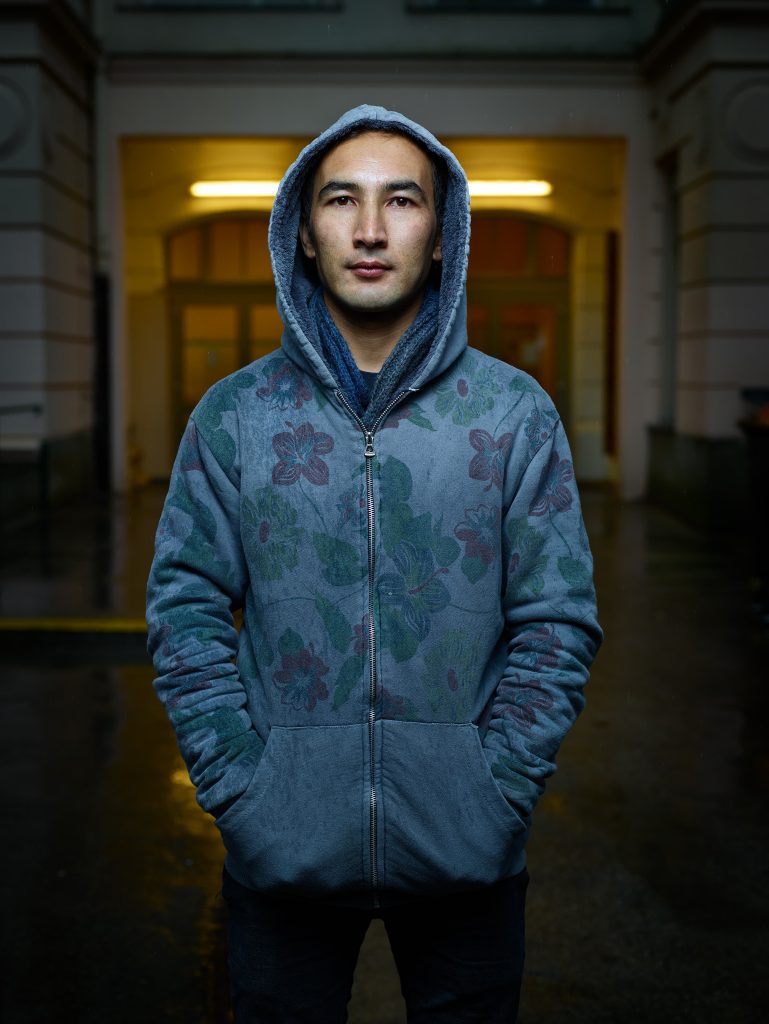
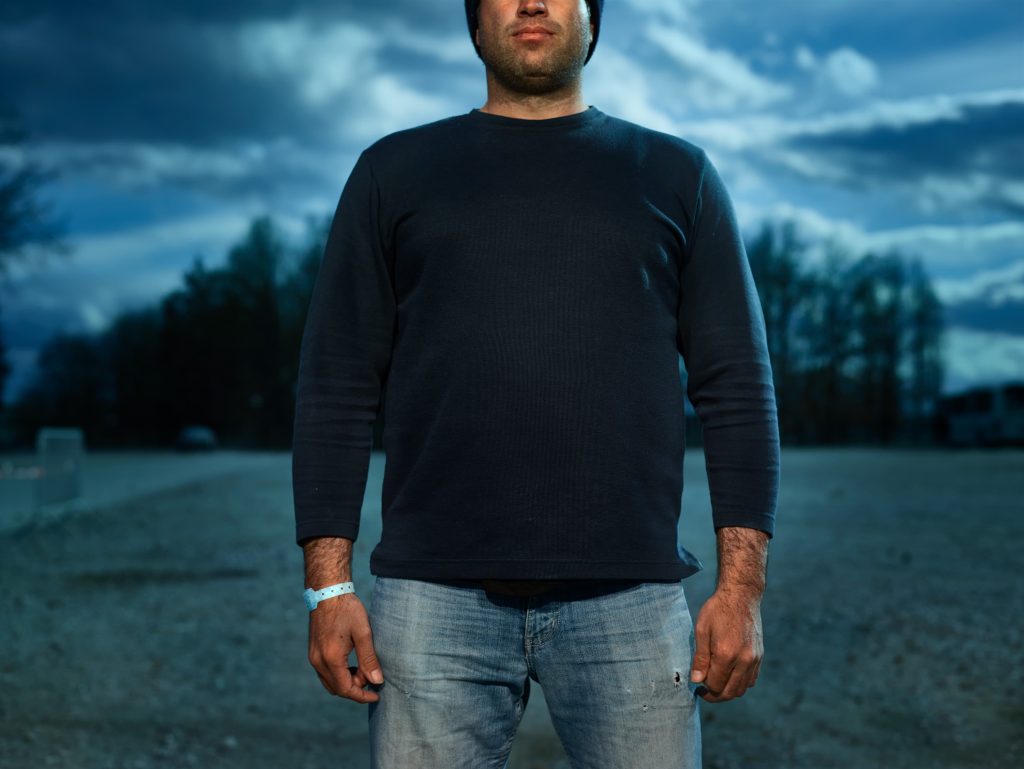
G., 09.02.2016
“I am afraid here in this first world country. We have no power here. They break us. I feel scared. I live in a camp with 1500 people inside. It’s full of sickness and there are only eight toilets and four bathrooms. The smell is awful. There are so many restrictions. The securities at the camp threaten us when we take videos or pictures. Once, the police caught me when I was peeing somewhere, and they gave me a fine. But why?
We are not free.”
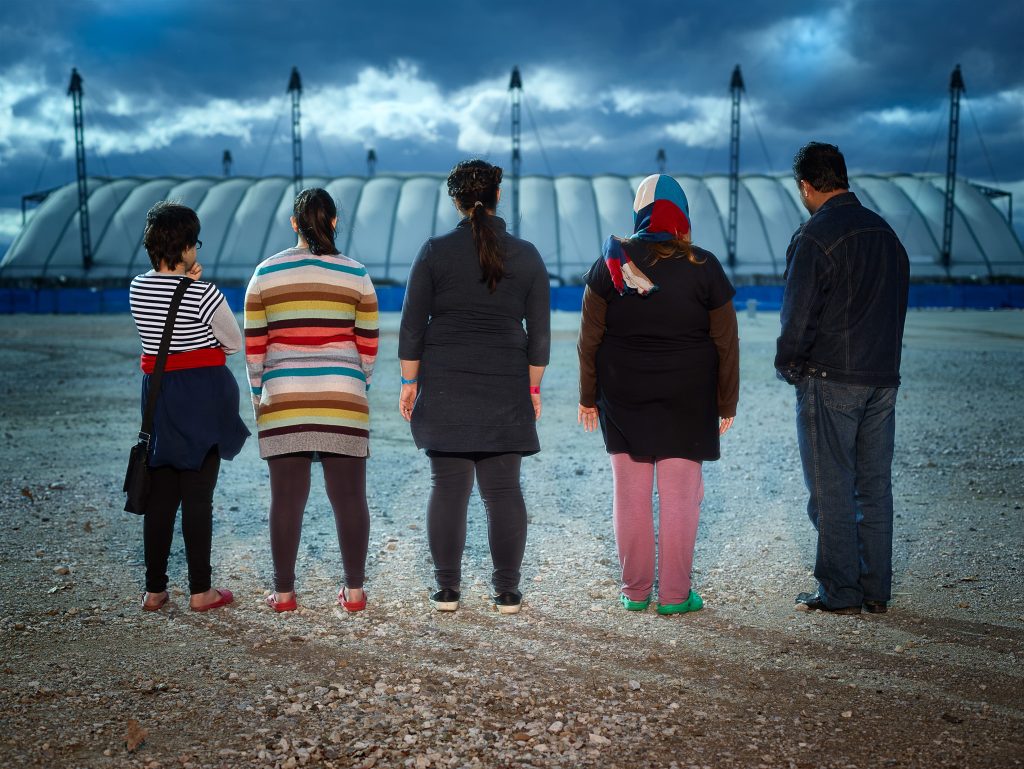
H. M. with her family: M., N., S. and Mehre* (Afghanistan), 09.02.2016
“I am ten years old and I have never been to school.
My name is Huma and I am the youngest daughter of our family. My parents are from Afghanistan, but I have never seen that country. When I was born, they had already moved to Iran in hope of a better future. But people without passports are not allowed to study or work there. The government in Iran treats Afghan people really bad. They use bad words for us.
We came over the mountains. We walked for nine hours or more each day and it took 35 days to get from Iran to Austria. It was very hard.
We are happy to be in this country, because Austrian people are very kind. But since we had to move to this big camp, our situation is getting worse.
Our family wants to help others in the future. I just wish that my sisters and me can go to school soon and have a better life. When I grow up, I want to be a doctor!”
*names changed
G. N. with his son M., 10 (Afghanistan), 09.02.2016
“In Afghanistan, we were all living together: Parents, children, and other relatives. We were 13 people in one house – that’s normal for Afghans.
Here, it’s just my son and me. We have been through lots of difficulties in every country we have passed.
Muzamil and me want to stay in Austria, because we like the country and the people. But when we went through Bulgaria, the police got hold of us and took our fingerprints by force. That’s why we are afraid that they will send us back there. We don’t want to go to Bulgaria, where the police beat my son.
We have been stuck here in this camp for 22 days already, and I think the police don’t want to help us. All they say is ‘You must wait’. So we are waiting.”
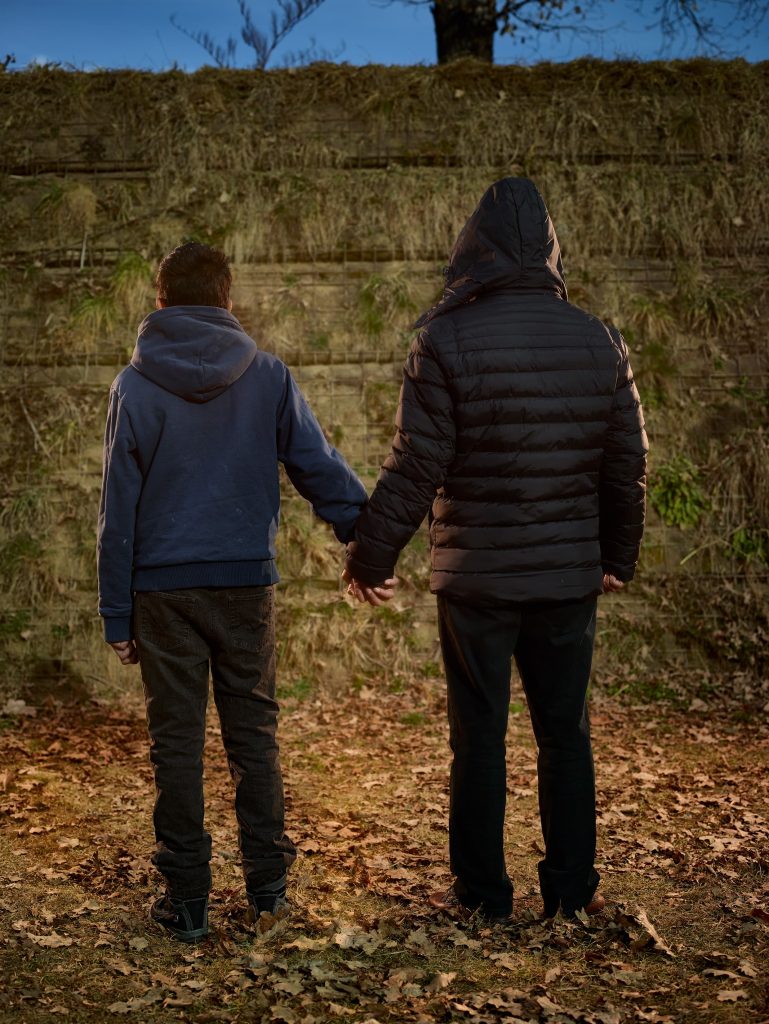
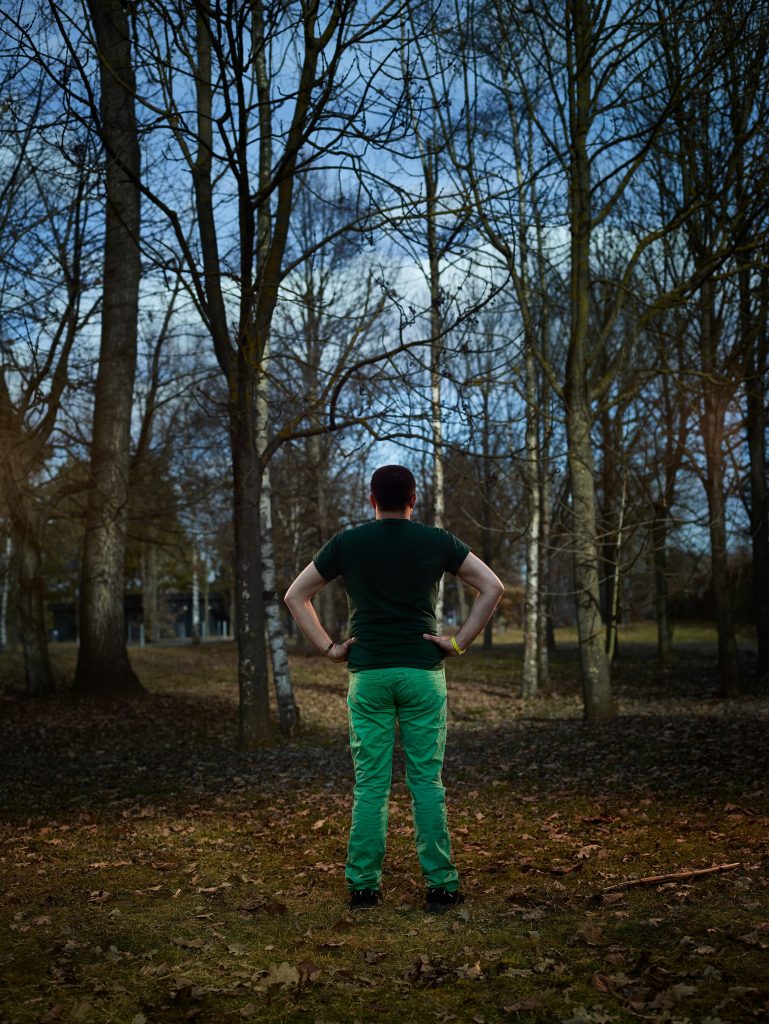
S. S., 20 (Afghanistan), 09.02.2016
“I used to be a soldier.
The situation in Afghanistan is really bad because of the Taliban. I went on the journey without my family and now I’m in Austria all by myself.
On my way here, the Bulgarian police caught me. They took everything I had except from my underwear. They put me in jail for 21 days and the people there beat me so hard that I ended up in a coma. When I woke up, the police took me to the station and forced me to give them my fingerprints.
I used to be a soldier, now I am a refugee.”
M. A., 28 (Iran), 09.02.2016
Long live Iran – even though I wasn’t happy in my home country, I still love Iran. If there is ever peace again, I want to go back.”

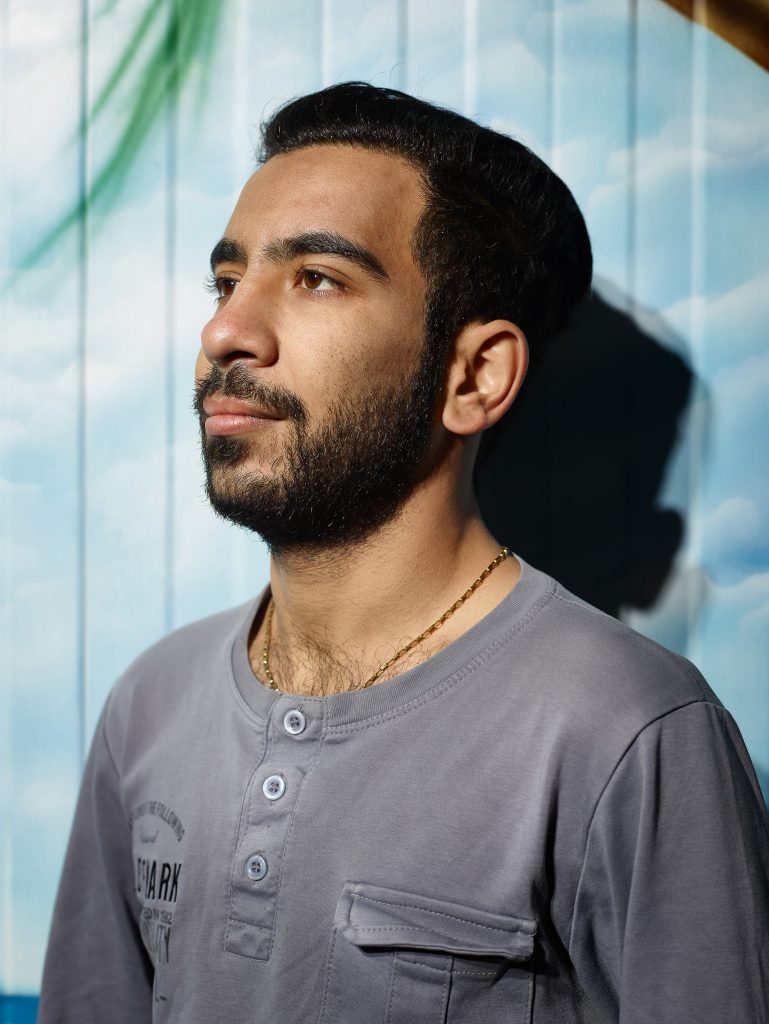
M. H. A., 24 (Iran), 09.02.2016
“I would love to live in Austria. I want to have a good life and a bright future in this country. I want to live in a peaceful society.
My cousin Mohammad and me grew up in Teheran together. He was a car mechanic and I was working for a windows and doors manufacturer. We do have some happy memories from there, like when we had snowball fights in the winter. But it’s not possible to have a safe life in Iran. It is also not allowed to change your religion and that’s what we want to do: From Muslim to Christian.”
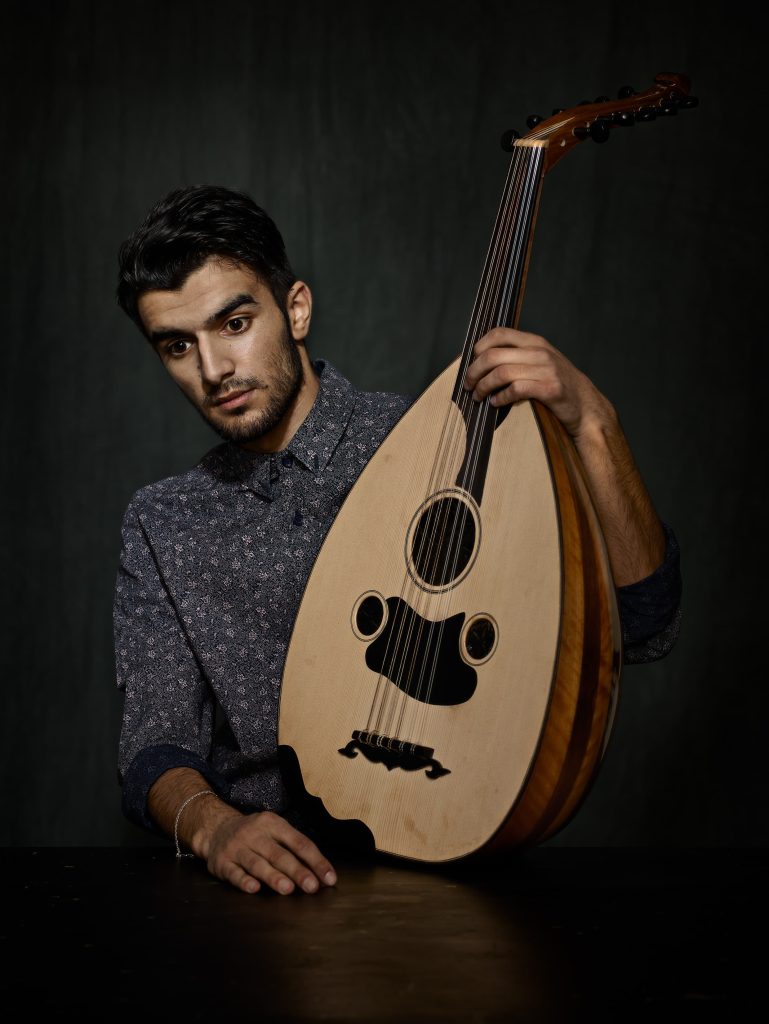
K. M., 20 (Syria), 01.03.2016
“Sorry for the bad people. But at the same time, I have to say: I am not responsible for them. So why do I have to apologize?
There are so many different kinds of refugees. I have met good and bad people. They are from Syria, Afghanistan, Pakistan, Iraq, Tunisia, or Morocco. But still, when one of them is doing something bad, people don’t say “He is a criminal” or even “He is Afghan”. They say, “He is a refugee”.
My band made a music video called “I Am Human”. It’s about the bad conditions in Syria. Hopefully many of the people who think that “we” like violence will watch it and understand. There are so many idiots and Islamic groups in our countries and it’s them we escaped from. If we liked the war, we wouldn’t be here.
I used to have a good life in Syria. Aleppo was divided and our part was ruled by the government. My sister and my two brothers were studying geography, Arabic literature and painting, and my major was English literature. My life was mainly studying and making music – I played the lute, the drums, and had a rap group called “Kaf Band”, which was getting more and more popular in Syria.
But the war damaged everything. It’s just not possible to live in Syria as a civilian, especially when you are Palestinian. We have always been caught between the fronts of soldiers, protestors, and Islamic groups. One night, three of my best friends were shot and killed while they were walking down a street. I was dealing with their deaths by making a song about them, but even producing art and music is dangerous in Syria. While we were filming “I Am Human” for example, somebody shot at us. During my last year at University, I decided to stop studying because otherwise, I would have had to join the army after graduating. Sooner or later, all of my friends left. Our university must be empty now.
When I accepted that I had to leave too, I only packed the most important things: My certificates and documents, some clothes, and a present from my girlfriend. The journey was horrible. For days and nights, I was walking long distances with a large group of other people, always knowing that we could run into the Mafia or the police any time. At one point in Hungary, I dropped my bag and the smugglers didn’t allow me to go back to get it. If I hadn’t kept my documents in my pockets, I would have lost them too.
When our group got caught in Austria, some of them ran from the police. I don’t know what made me decide to stay, because my brothers and sister are in Germany and originally I had planned to go there. But I had heard that Austria is a nice country too; and I knew about Mozart and Salzburg. So this is where I ended up.
As a refugee, I am neither here nor there. But I am a human being, and planet Earth should be here for all of us. If I get the chance to stay, I will not move. I will build my life again. I am already continuing to make music here and once a week I am giving a drum workshop to a group of Austrians. My goal is to graduate from University and to be a journalist. I want to write about Palestine and my ideas about peace, justice and humanity.”
‘Bury me in a park, let me plant peace
The souls of the innocent sleep tenderly’
(lyrics: Karam Maghamis / translated from Arabic language / music video “I Am Human” by Kaf Band available on Youtube)
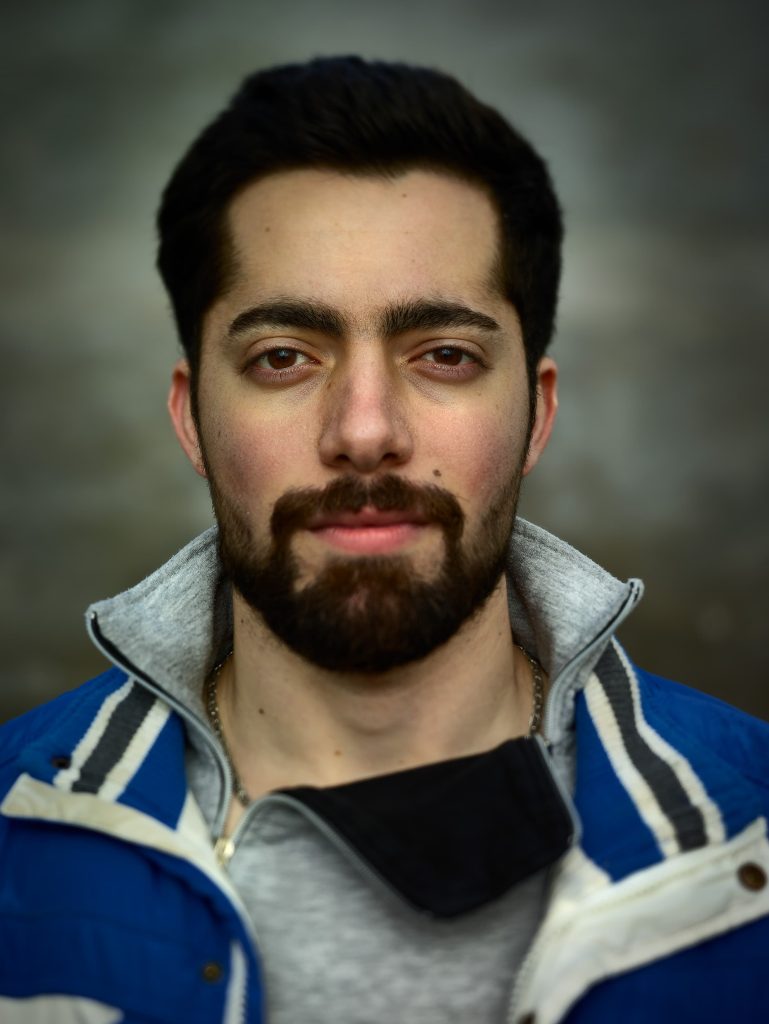

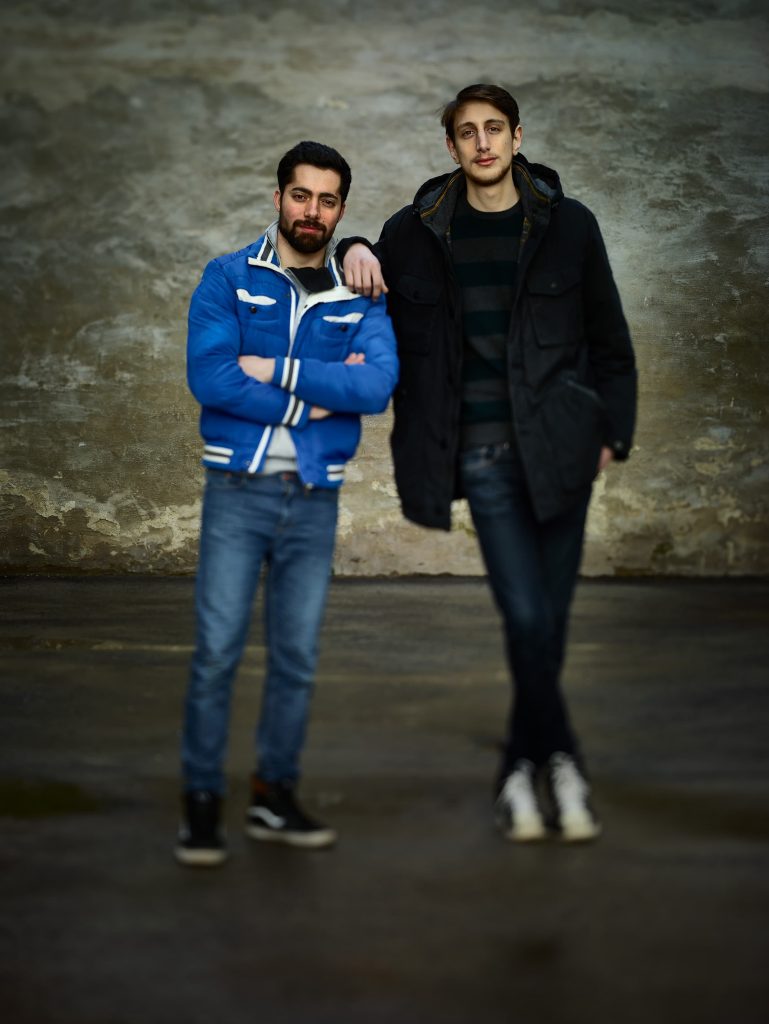
K. K. F., 26 (Iran), 23.04.2016
“Whenever I compete in a race, a countdown is starting in my head.
10… 9… 8…
Decide to do it. Prepare yourself. Go through the route in your mind.
7… 6… 5…
Accept the risk of losing. Focus only on yourself. Shut off your emotions.
4… 3… 2… 1…
Go. Don’t hesitate. Don’t look back. Win.
I was a professional cyclist in Iran. My favourite discipline was sprint, which is all about speed. It fascinated me: Every thousandth of a second matters. During a race, my whole focus was on my muscles. I was the one in total control of myself. Control.
During the other parts of my life, I belonged to the government. When you live in Iran, they control your daily life, they control your ideas. they control you: Don’t express your opinion. Don’t communicate with girls. Don’t deny Islam. The only dream you are allowed to have is the government’s dream. It’s like being alive, but not living.
For other people, Iran may be paradise. But I think that religion gets dangerous as soon as some people force other people into believing something. In this case, my parents are great: They are Muslim, but they have always told me to believe in whatever my heart and mind tell me is right for me. The problem I had was that it felt like living in secret all the time. People like me are not allowed to exist there. I want to have the right to say what I believe in. I want to be free. I only have one life.
For this reason, my brother Kamran and I wanted to leave Iran for years, but it took a long time until we had enough money to prepare everything. We contacted people who took the route before, and we knew about the dangers. We also didn’t have wrong expectations about Europe and knew that the first months and years would be very difficult. Finally, two months before our departure, we stayed up until 3 a.m. thinking and debating, and we made the final decision.
Again, the countdown started.
10… 9… 8…
Decide to do it. Prepare yourself. Go through the route in your mind.
7… 6… 5…
Accept the risk of dying. Say goodbye. Shut off your emotions.
4… 3… 2… 1…
Go. Don’t hesitate. Don’t look back. Win?”
